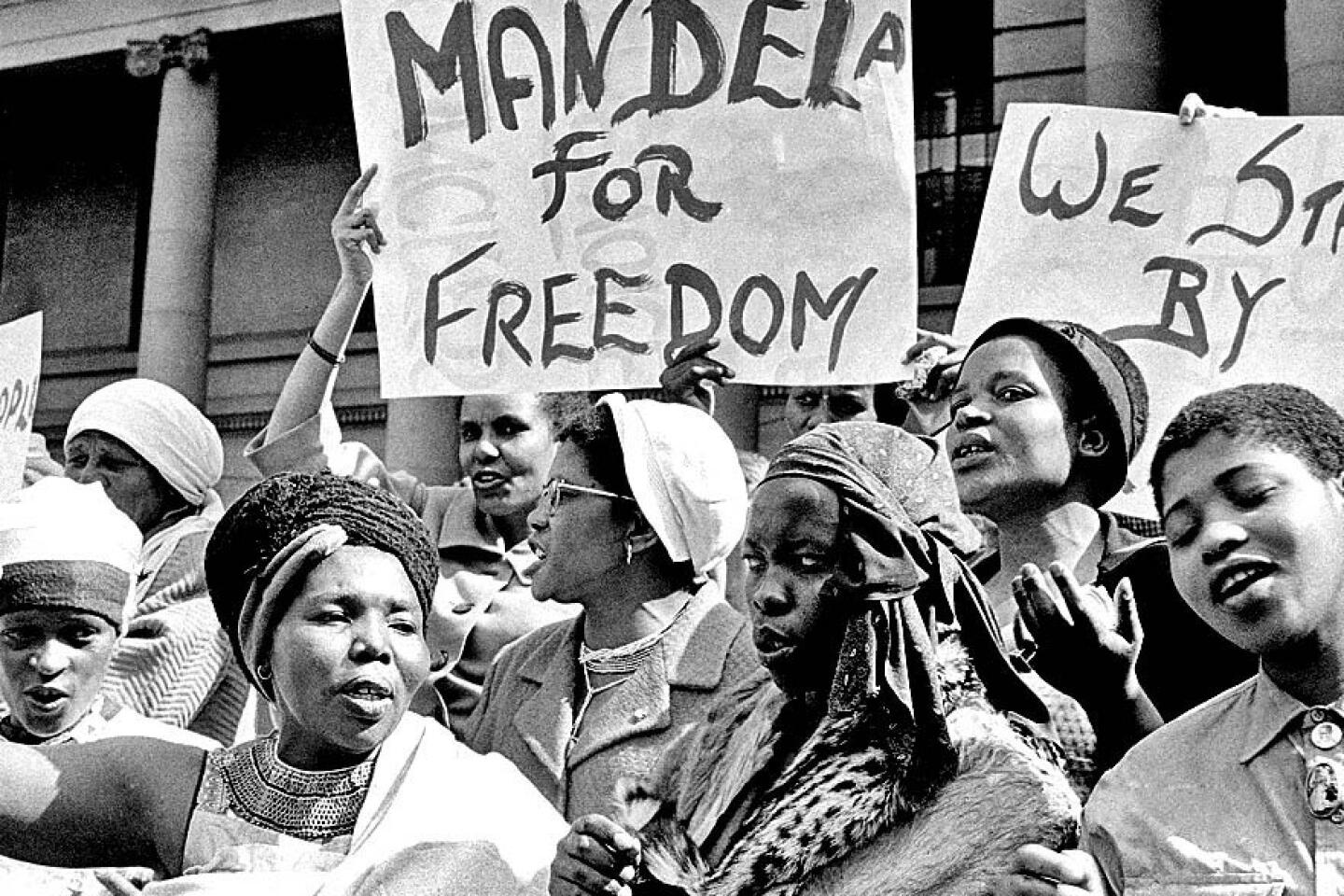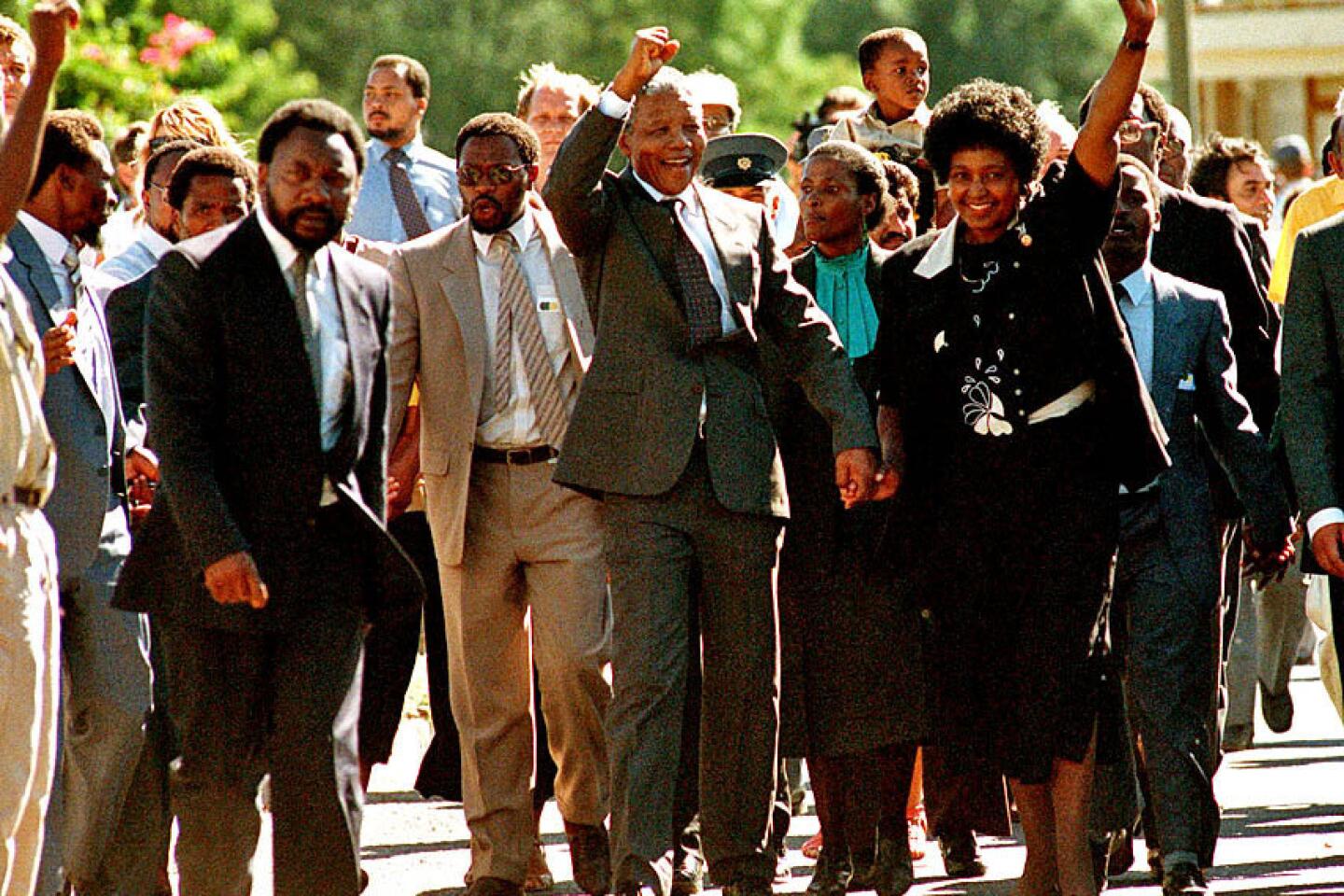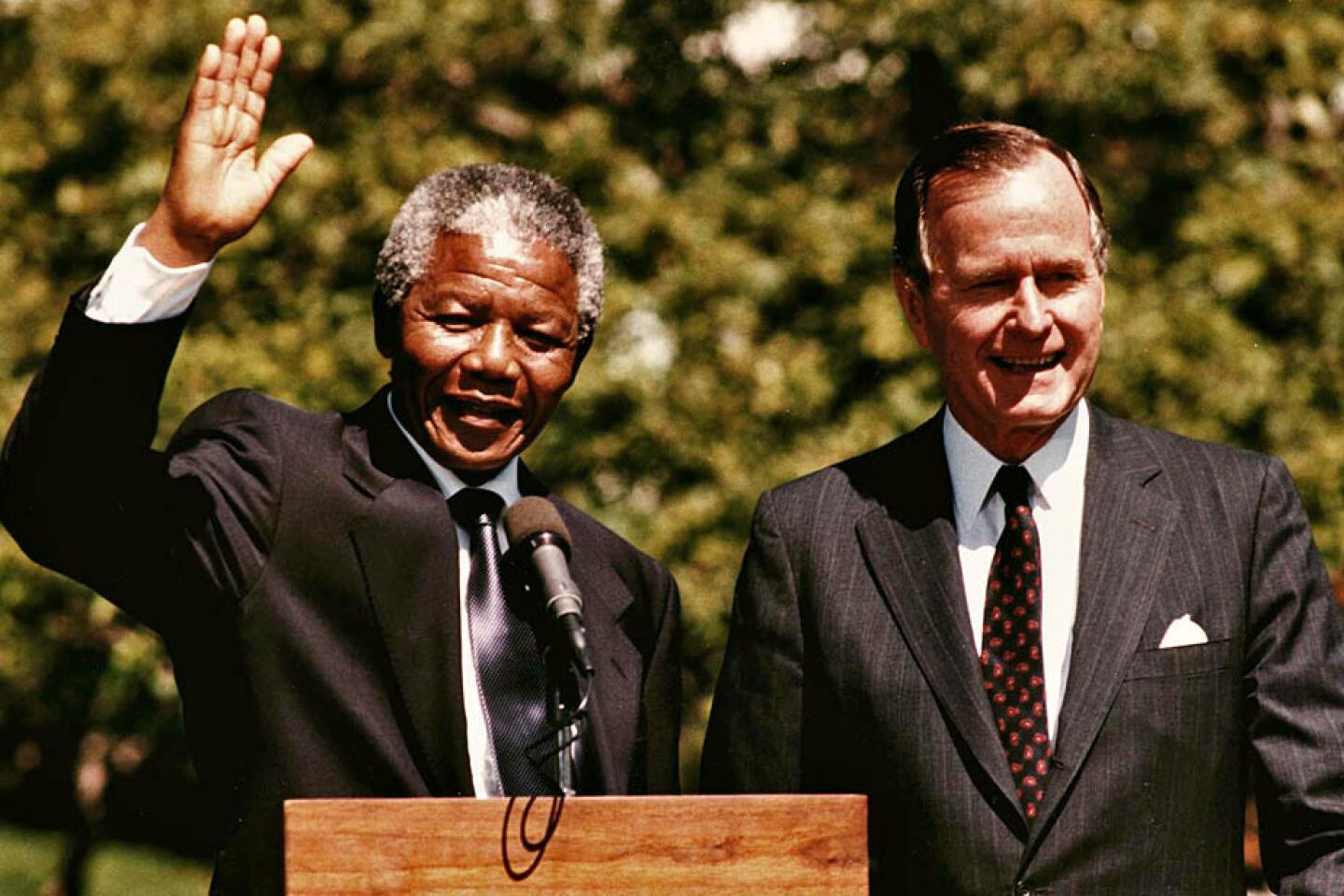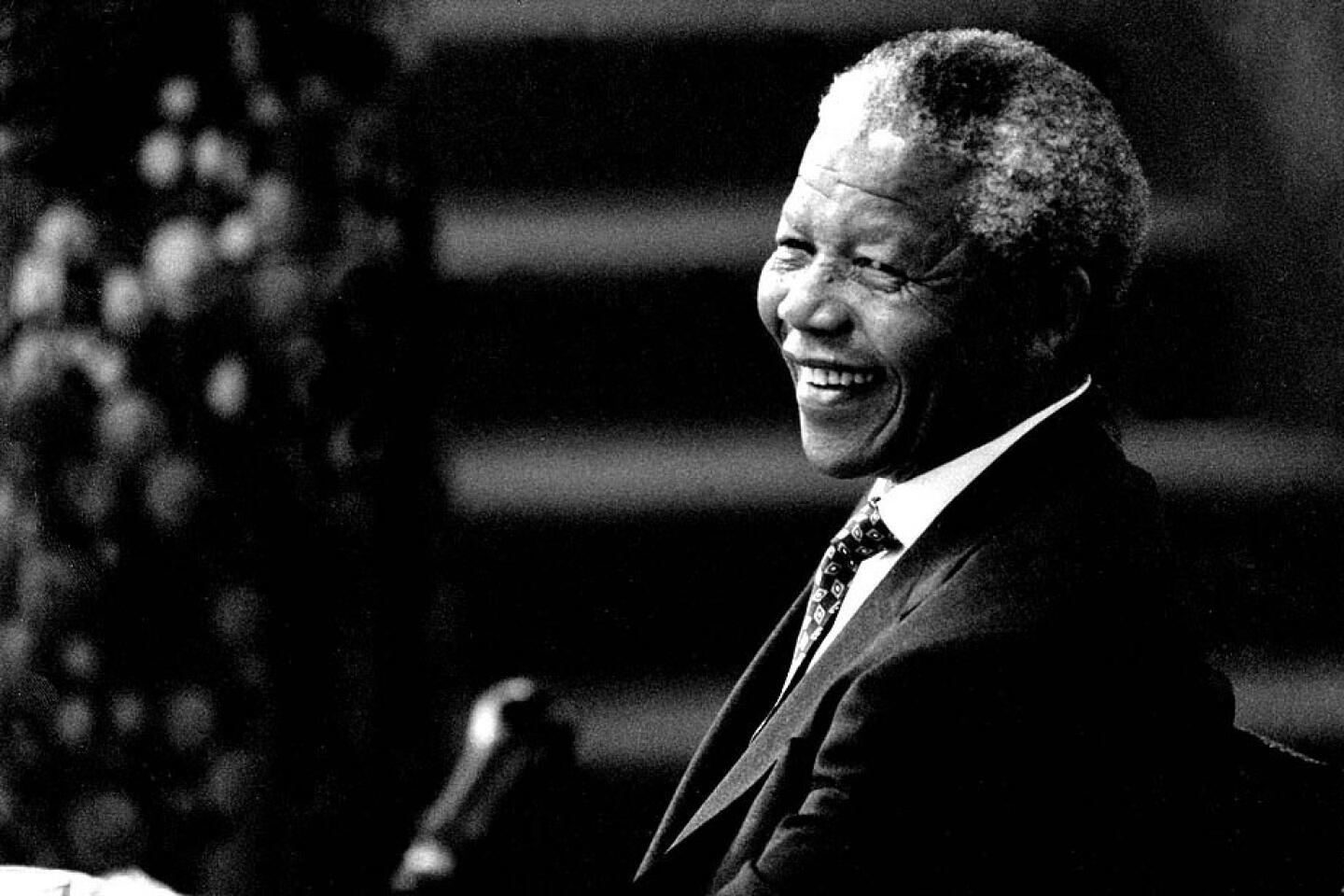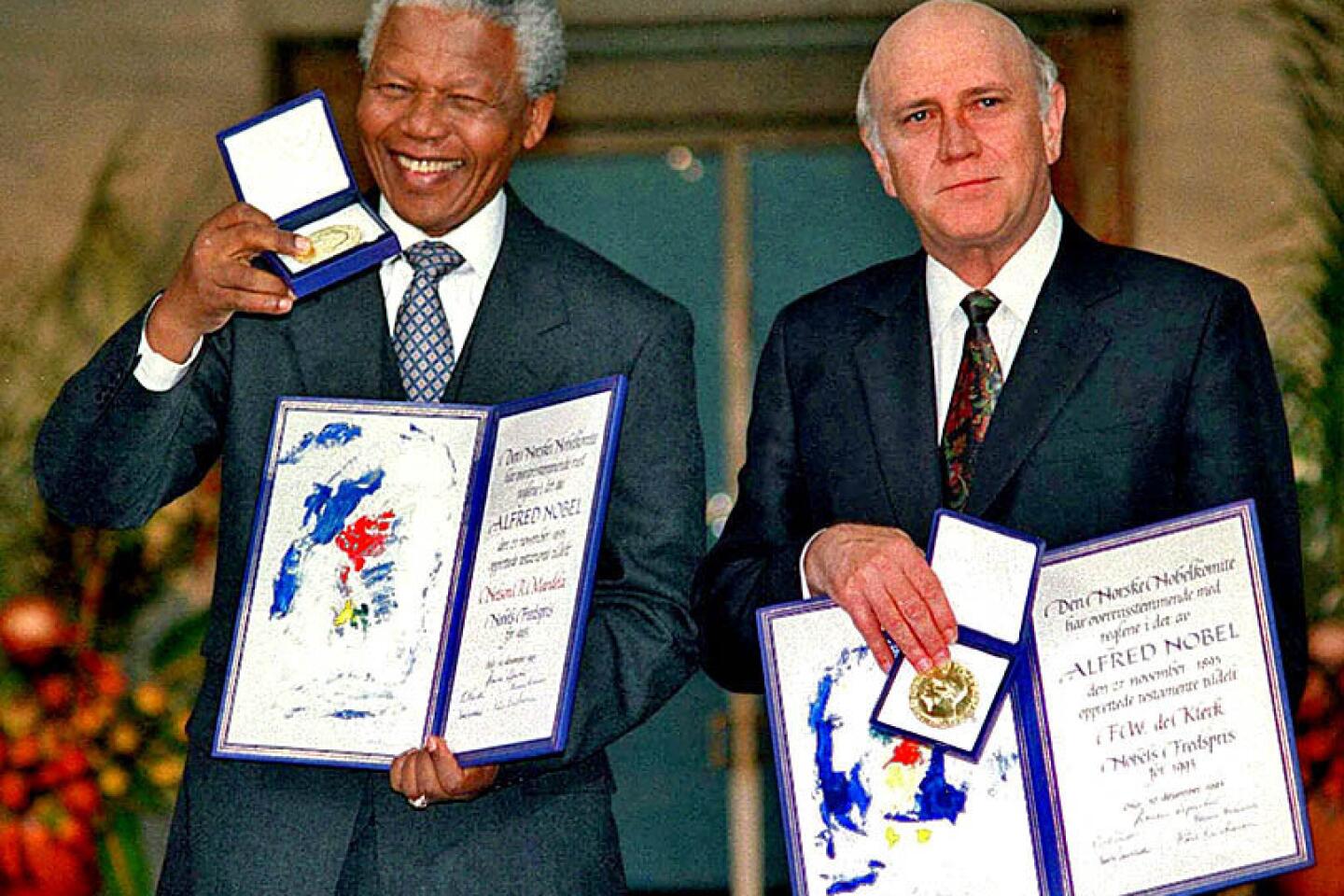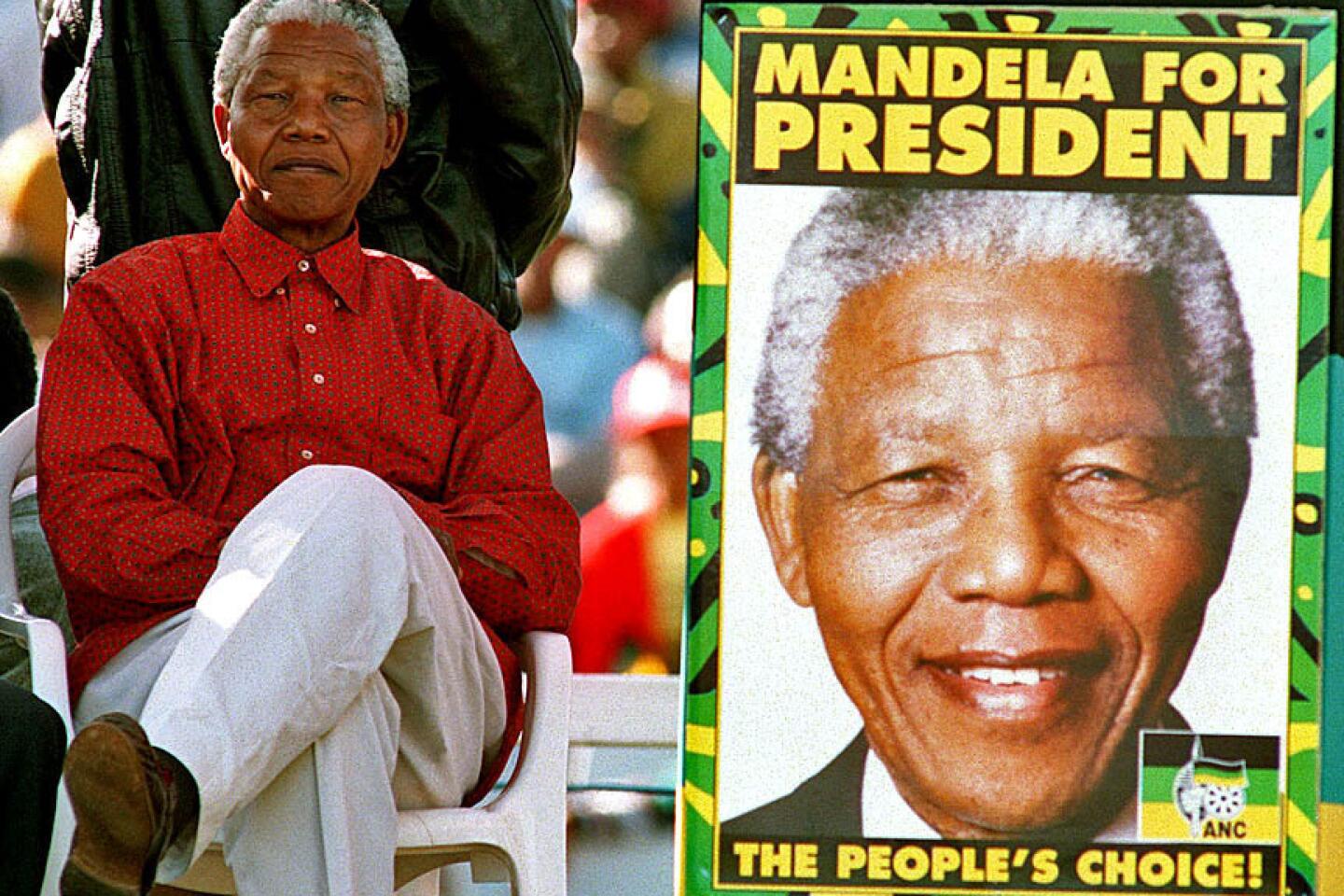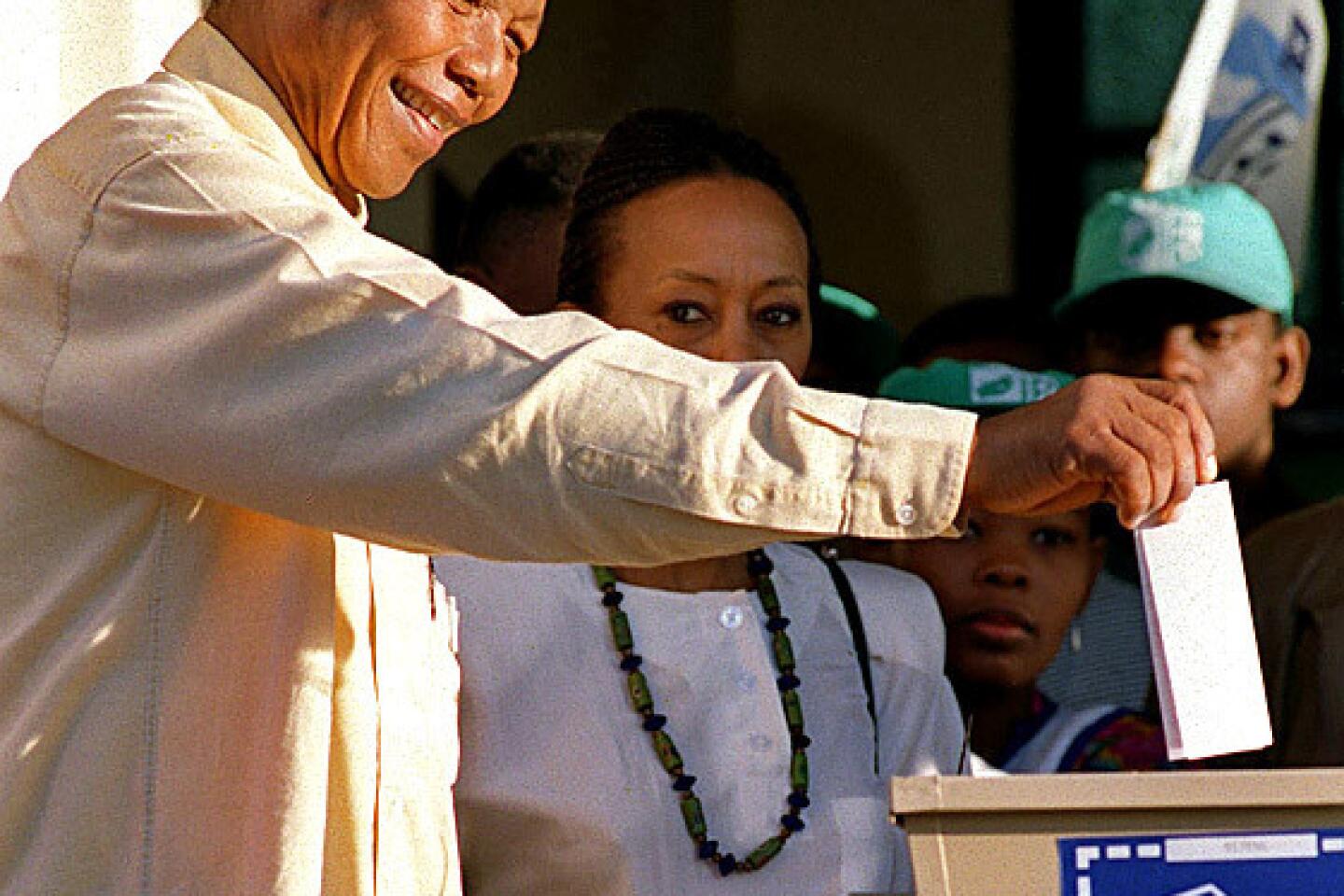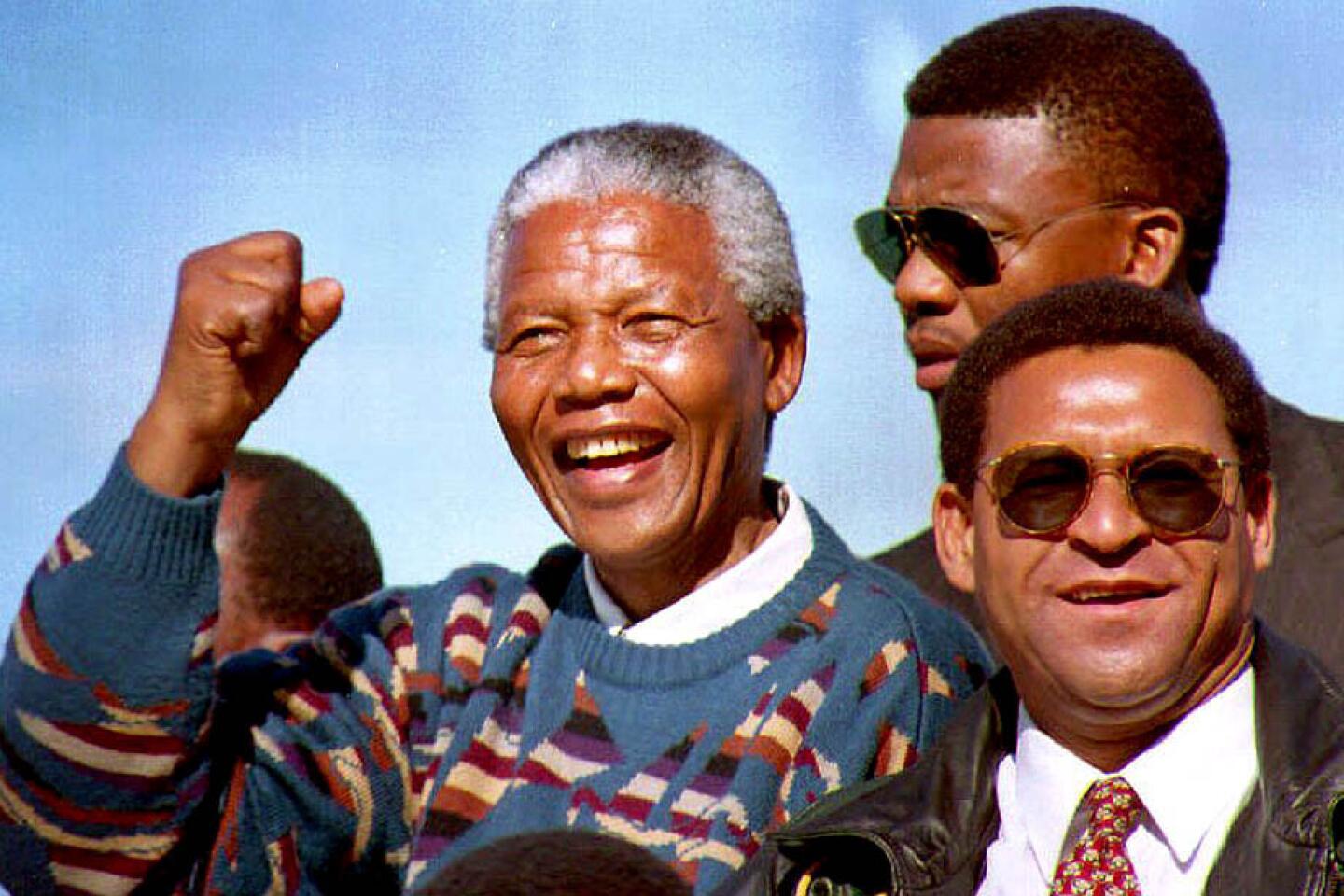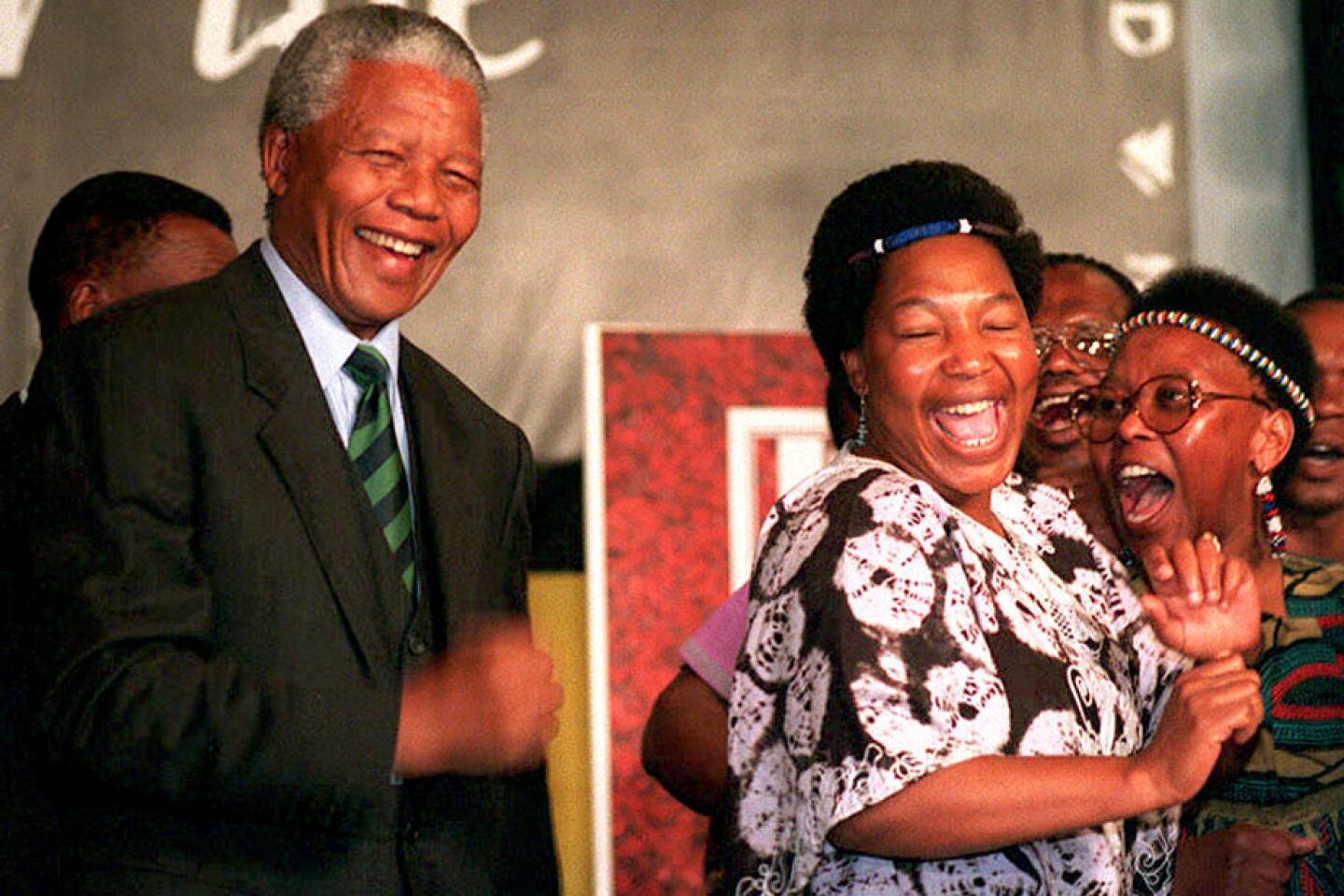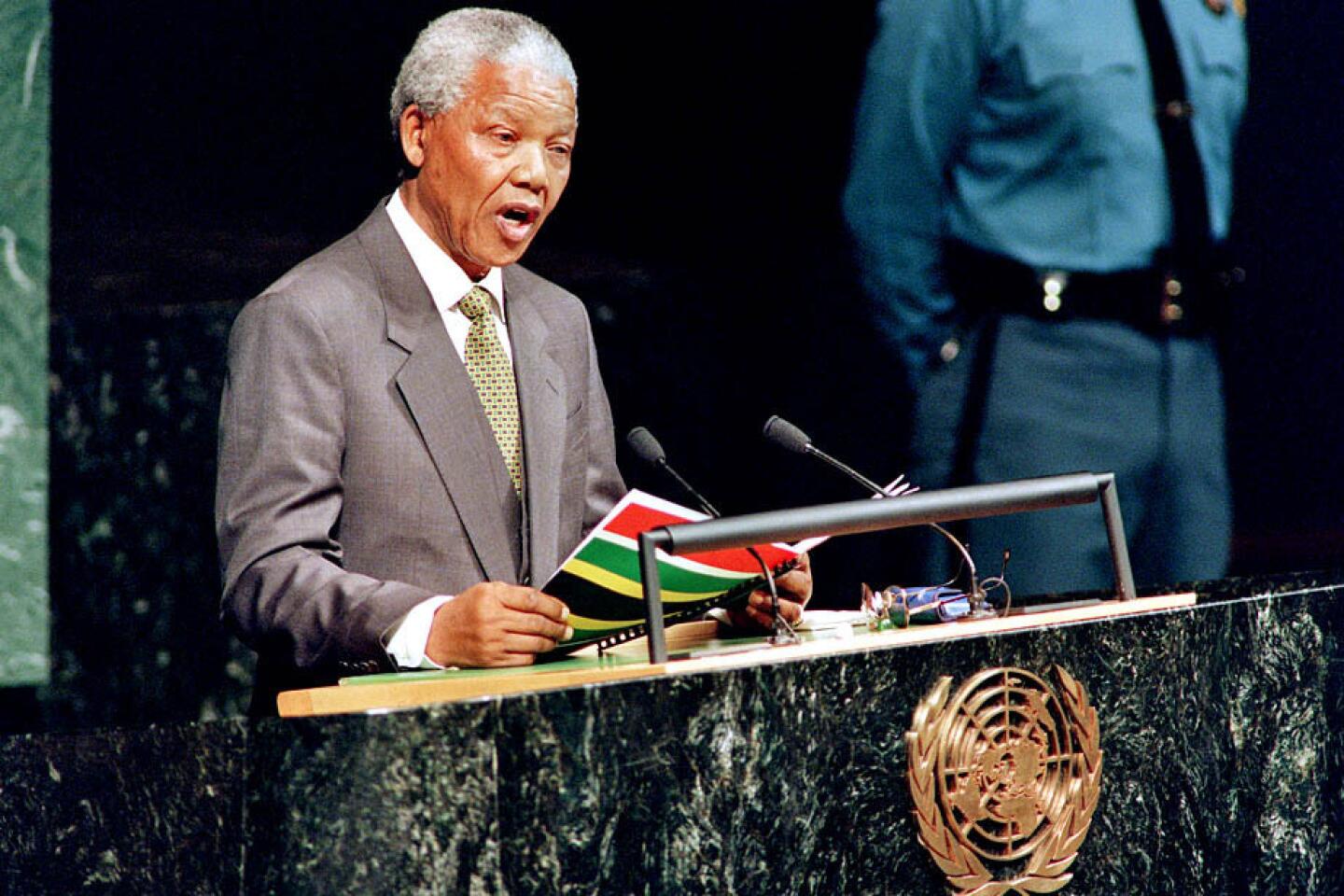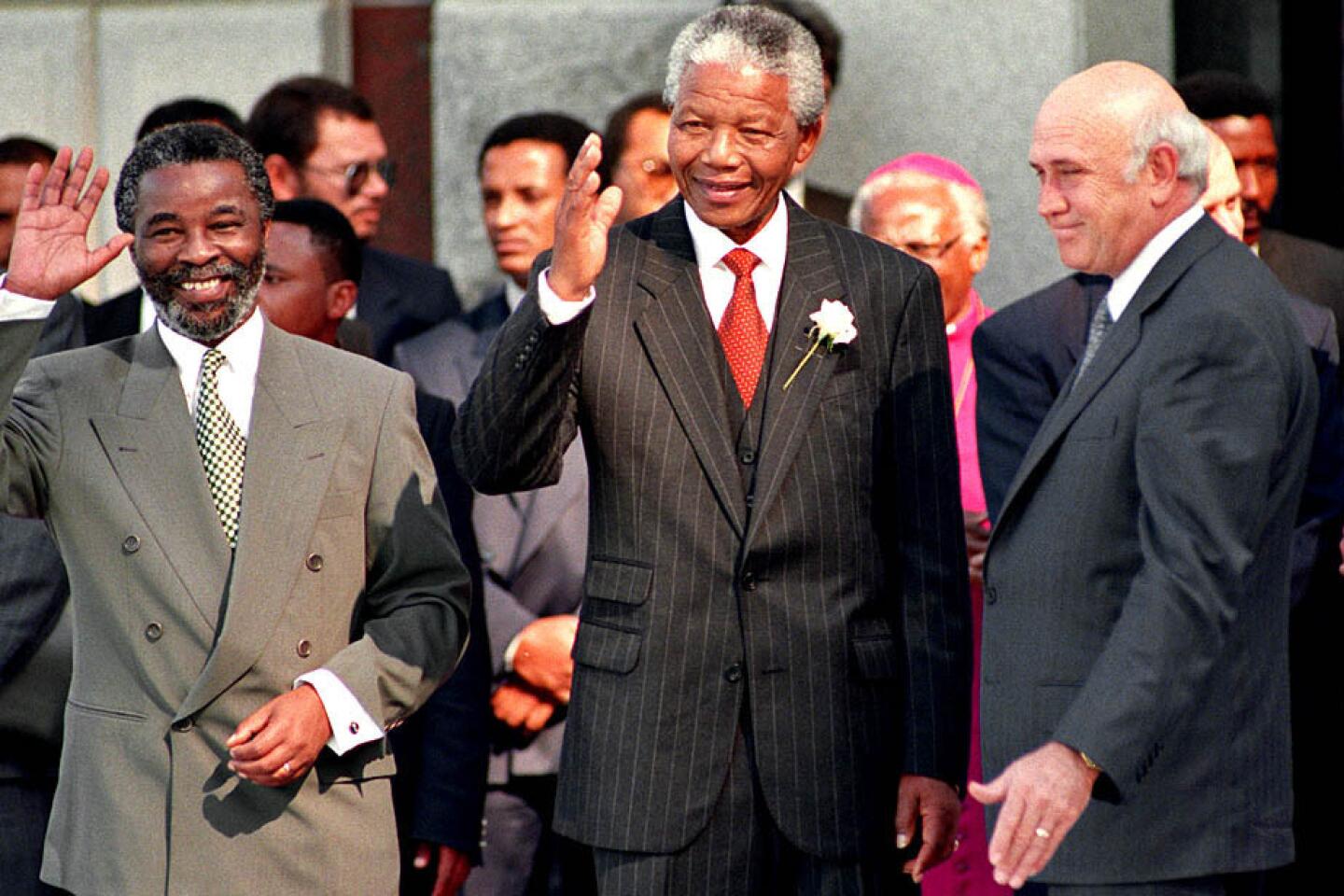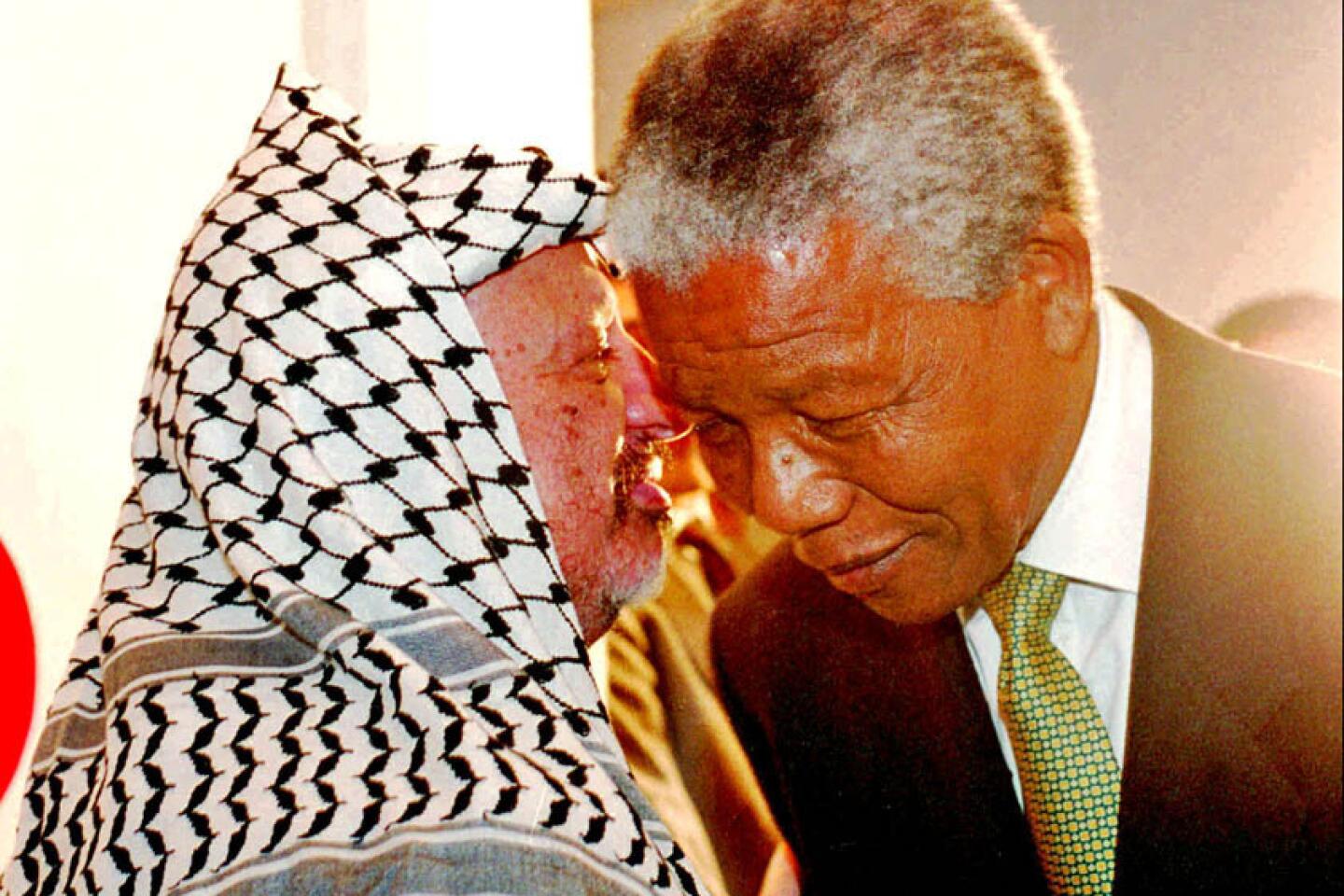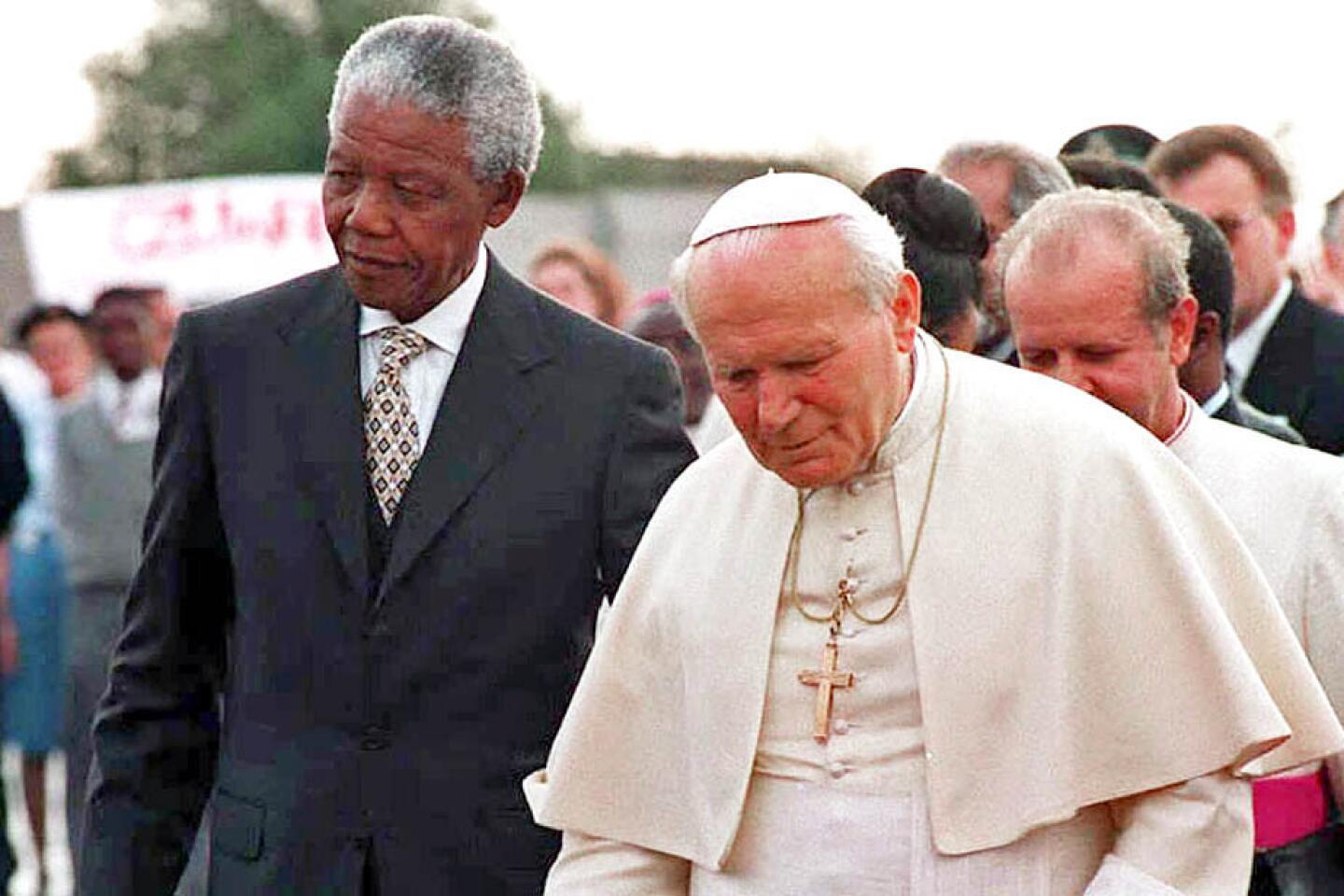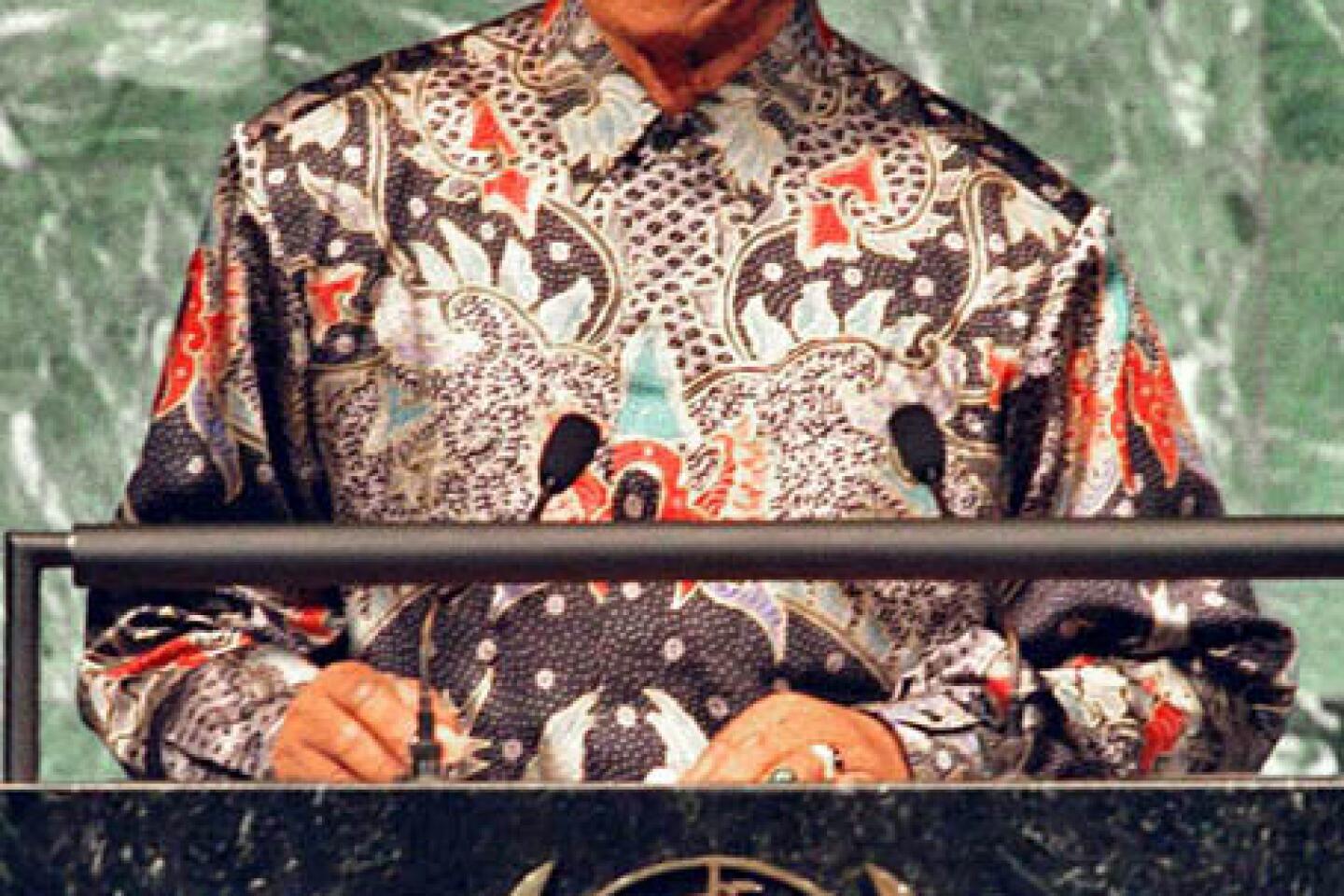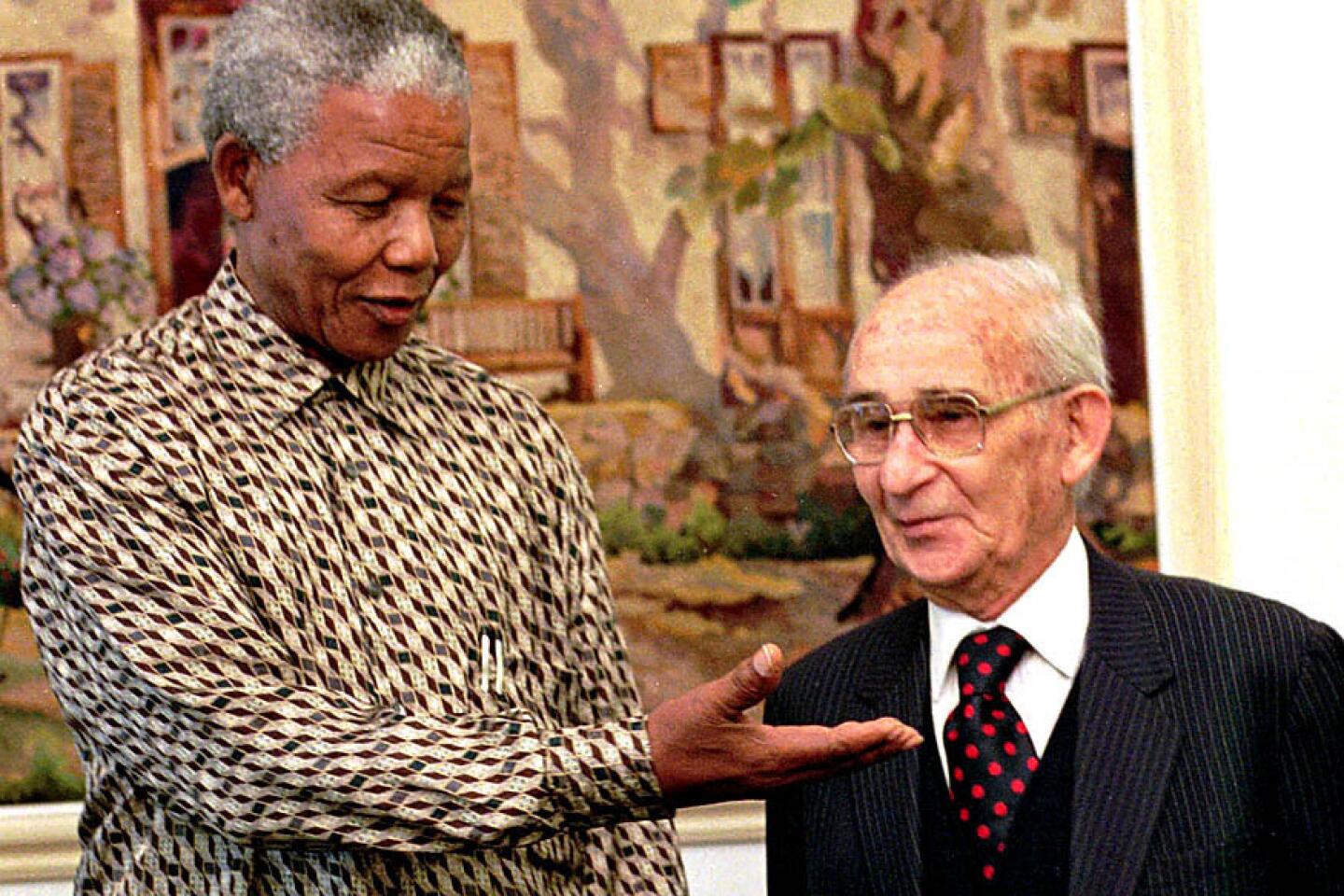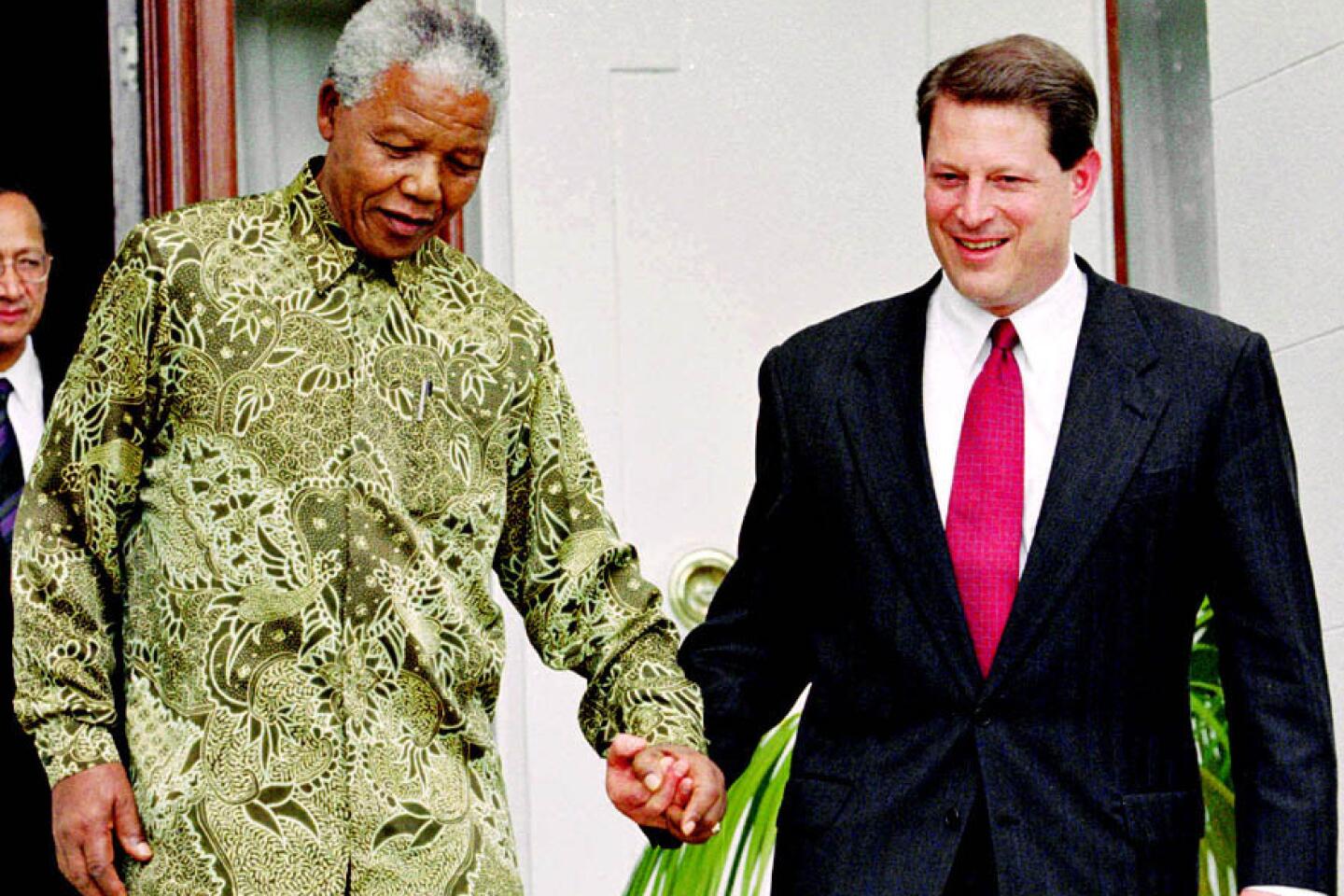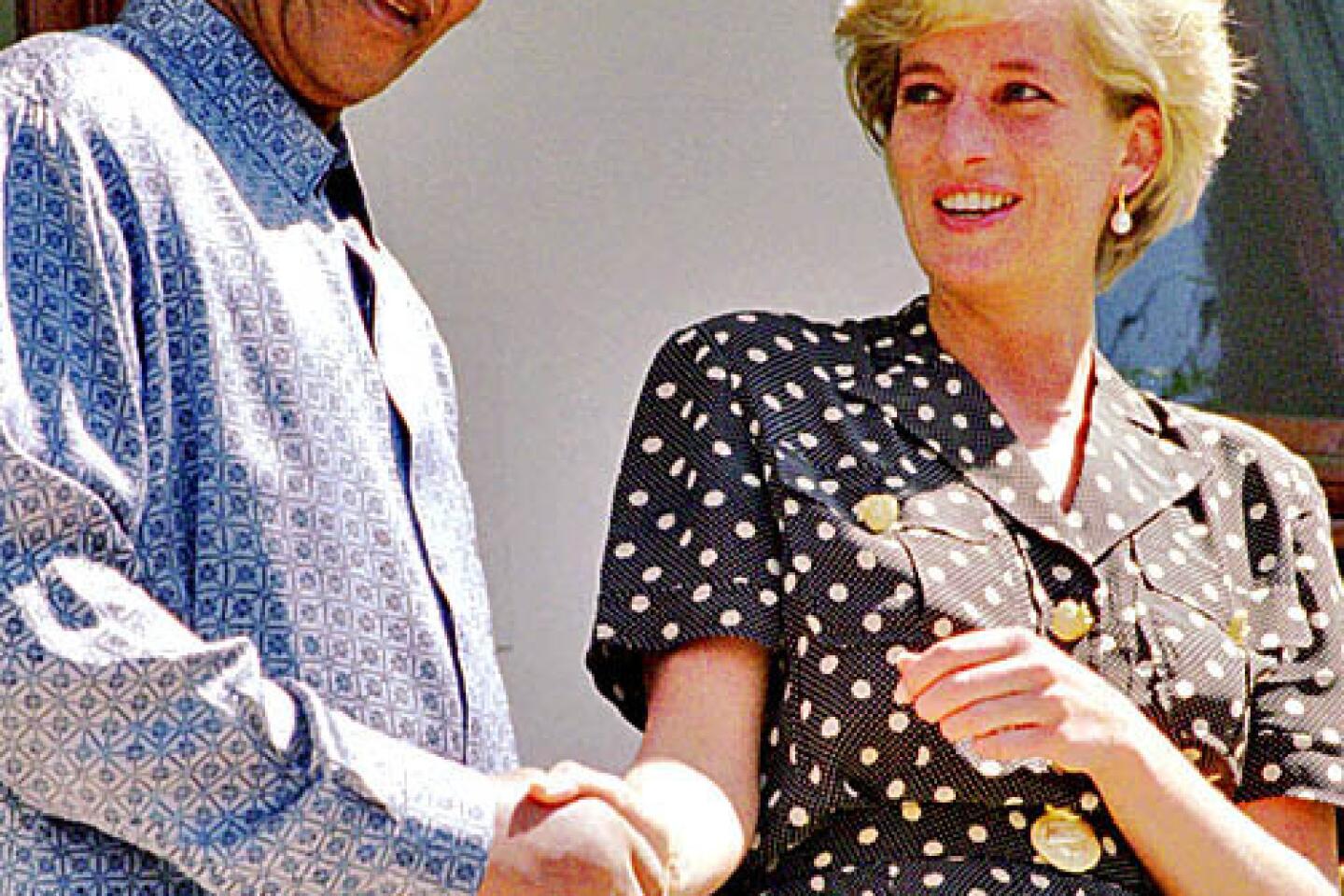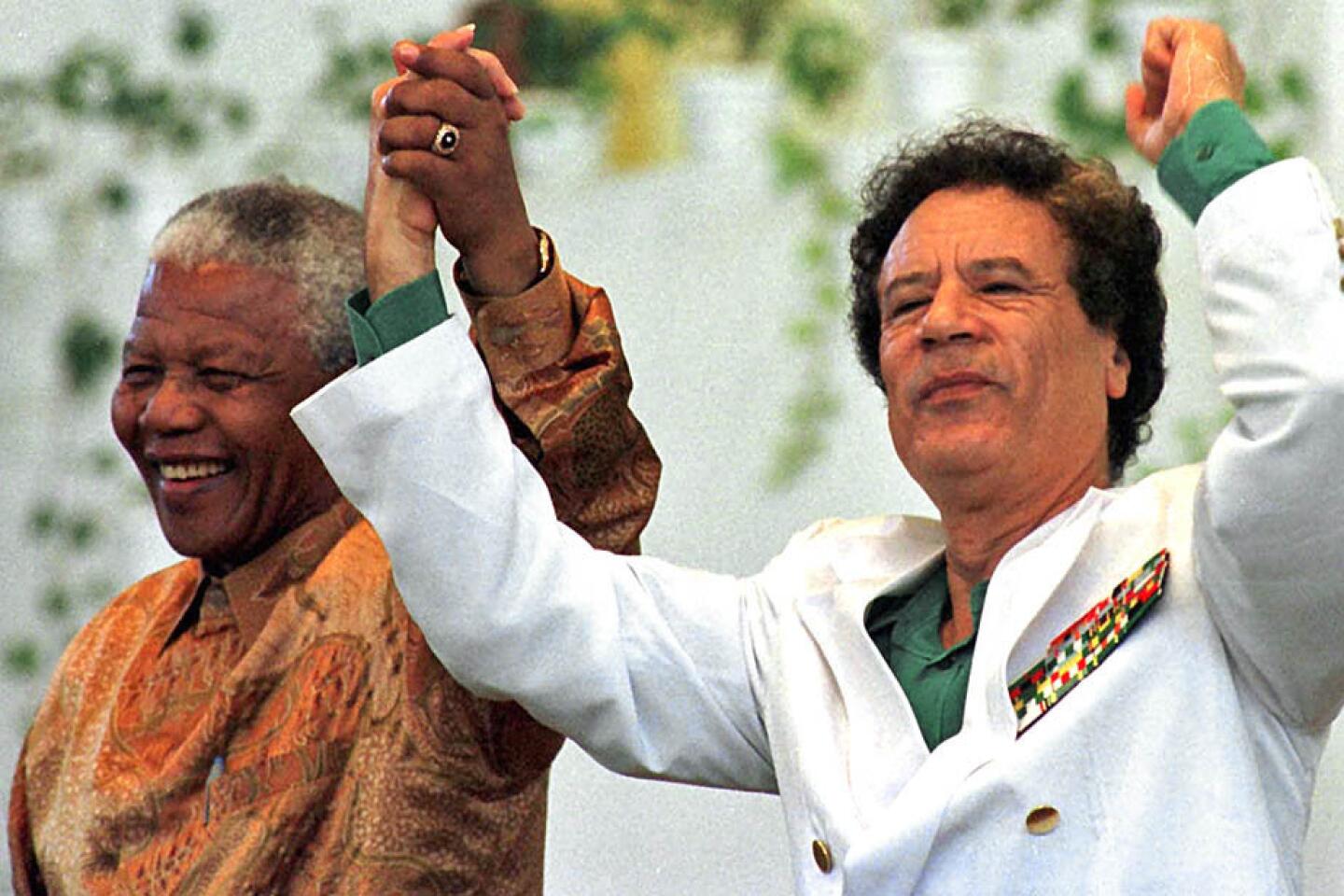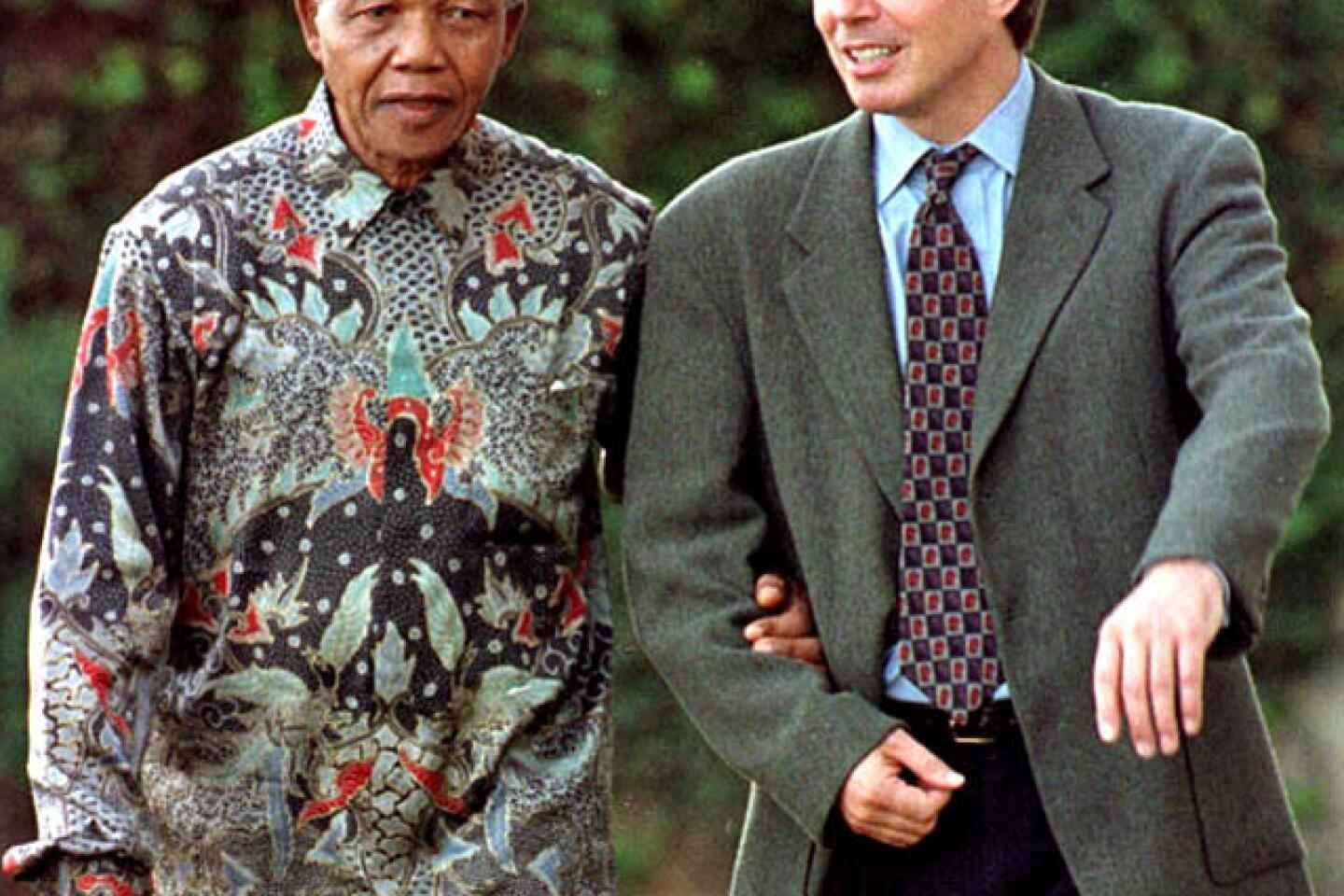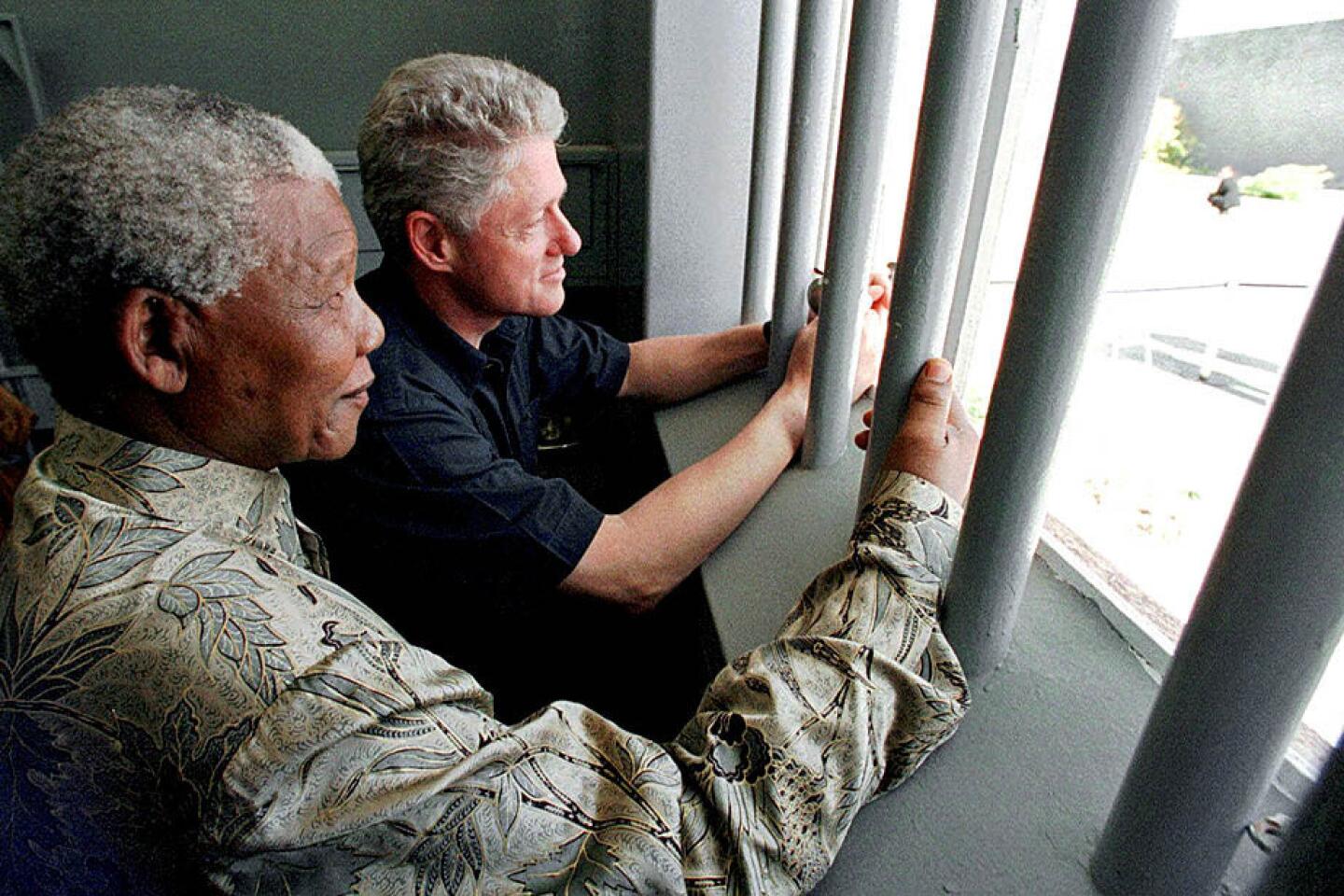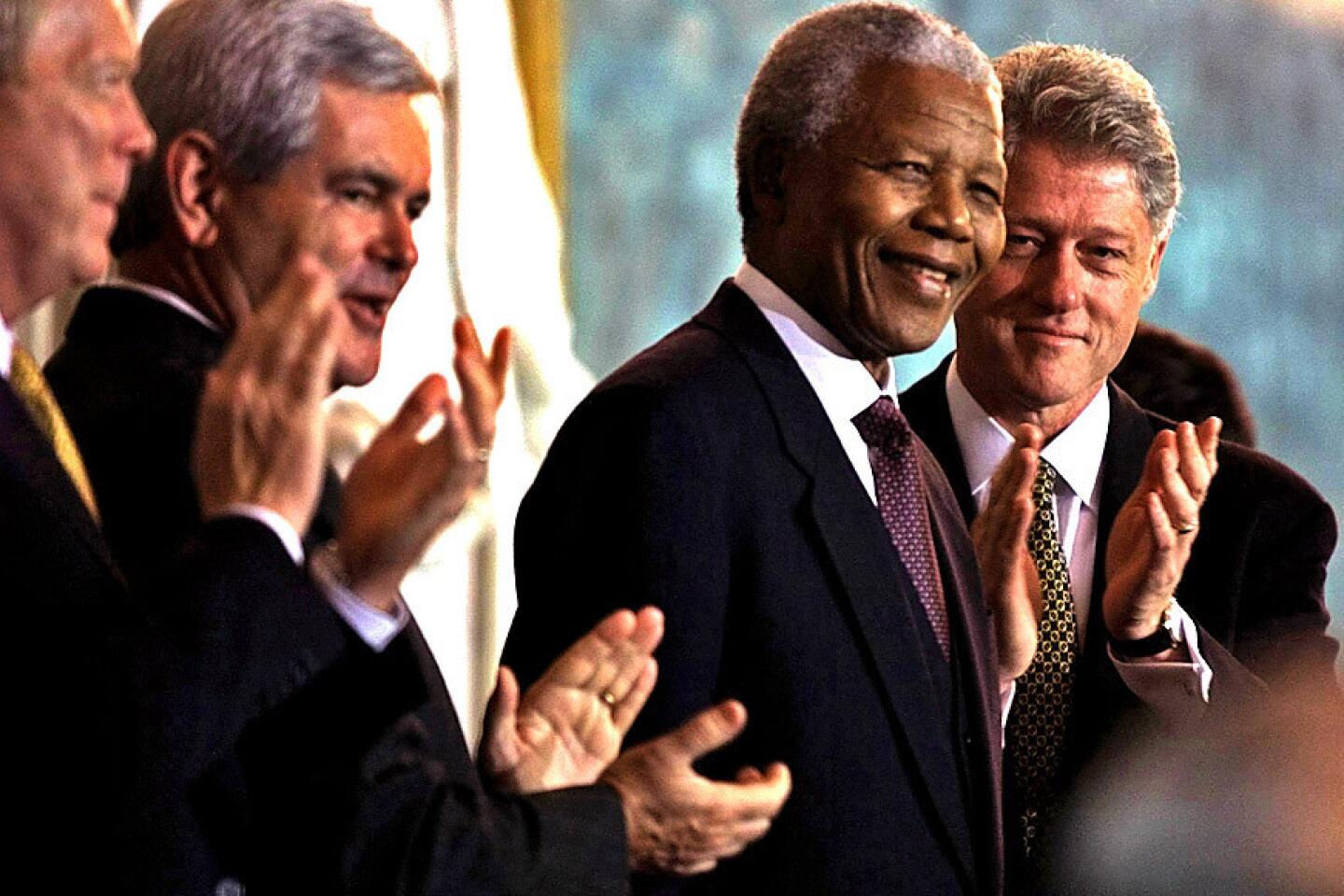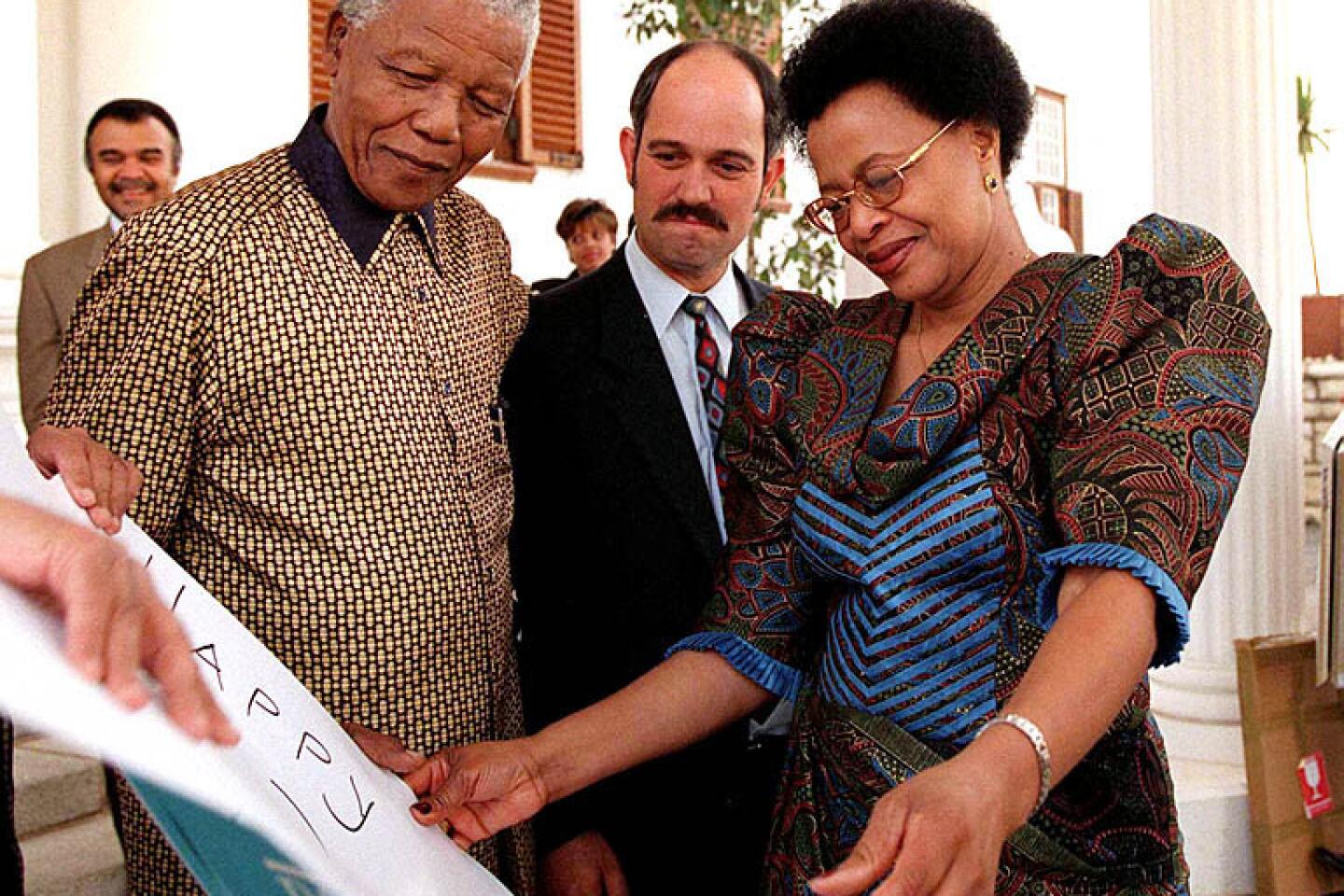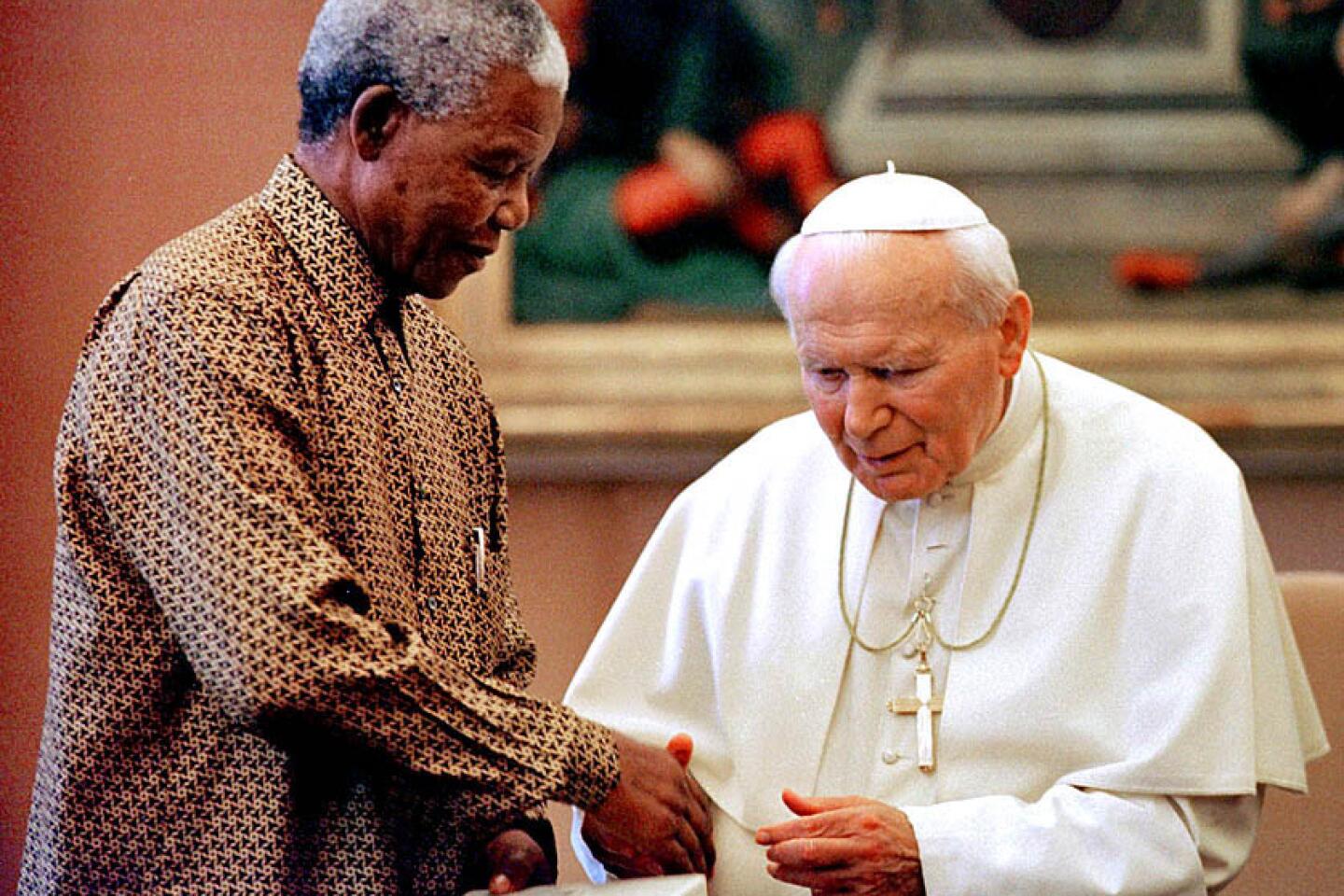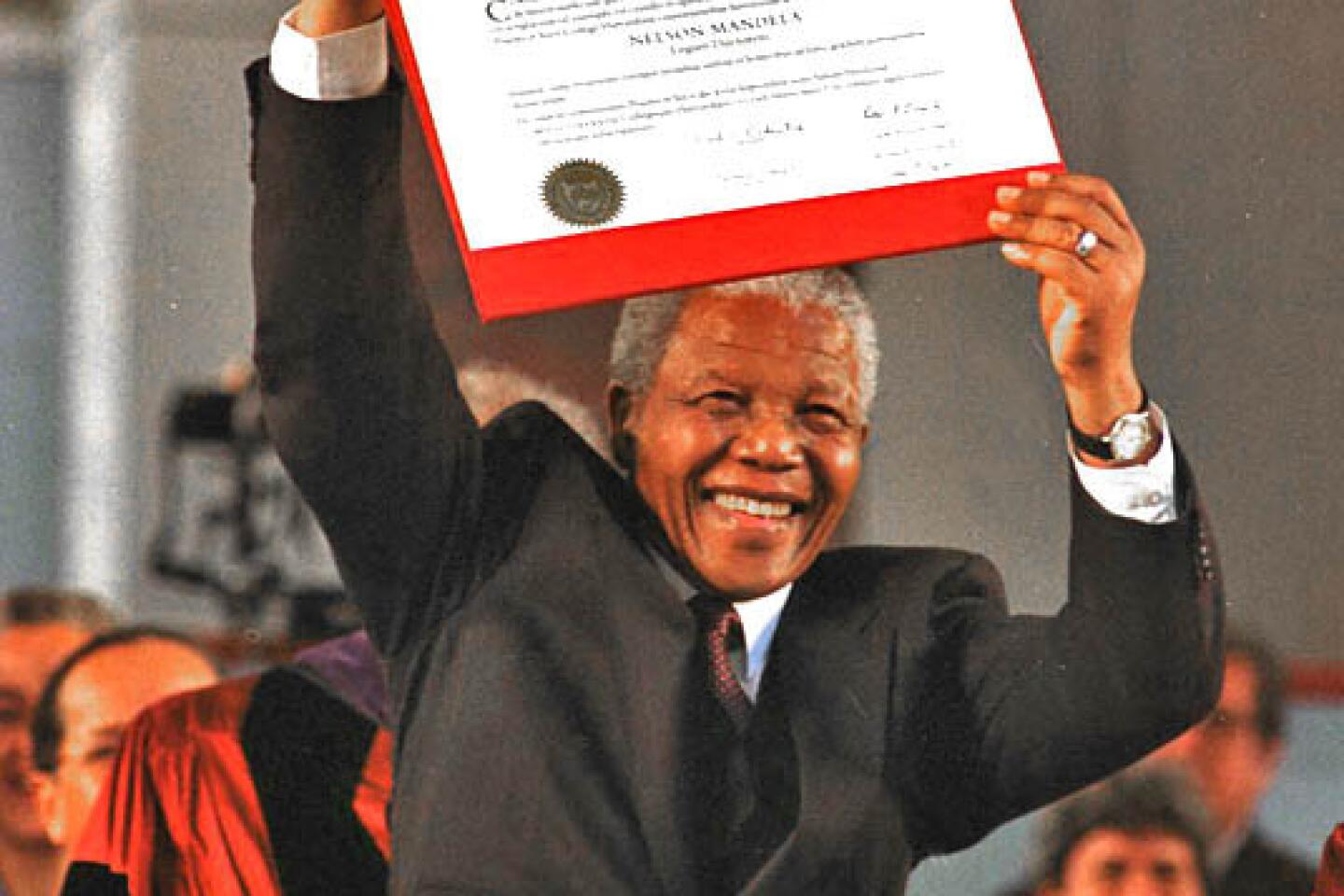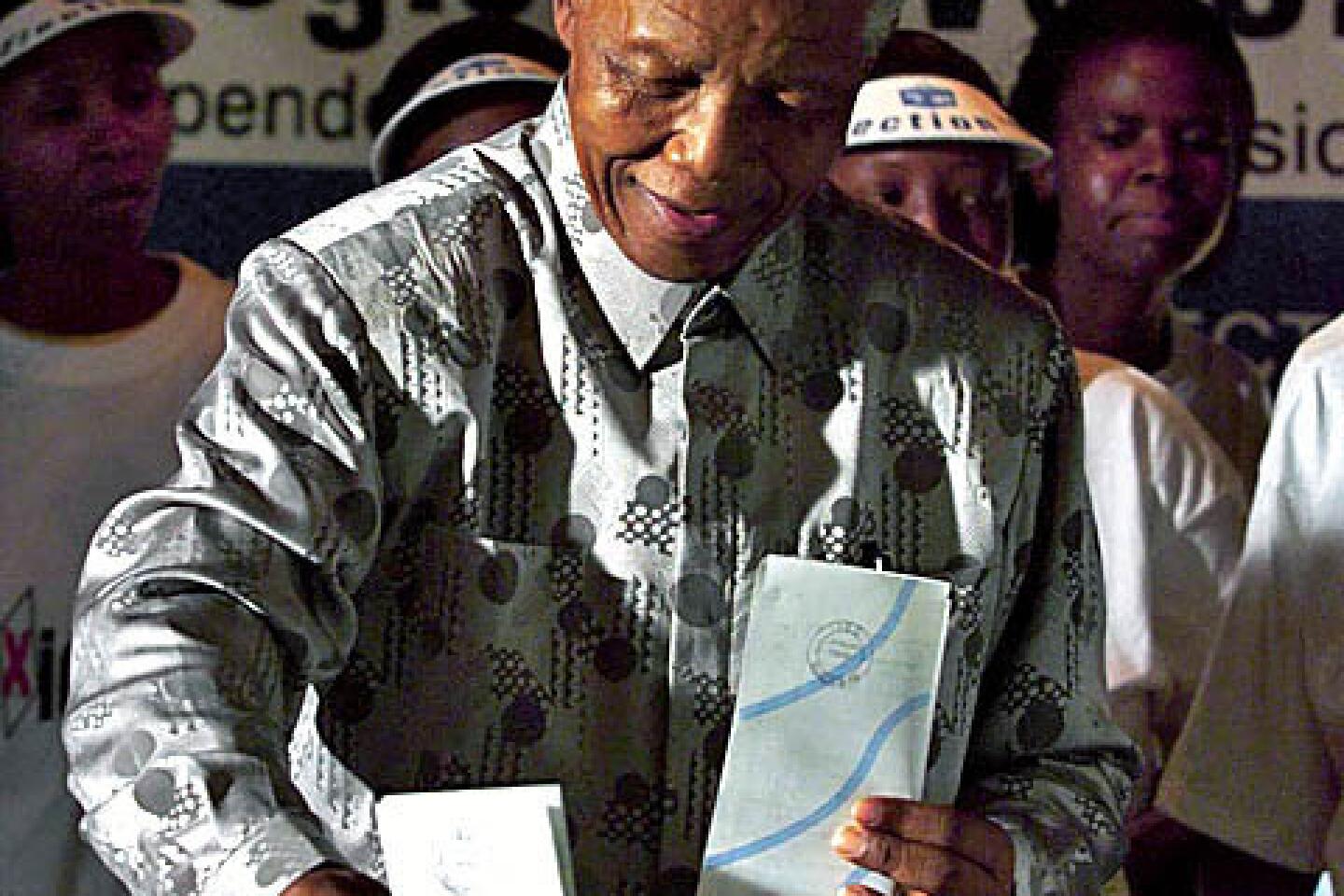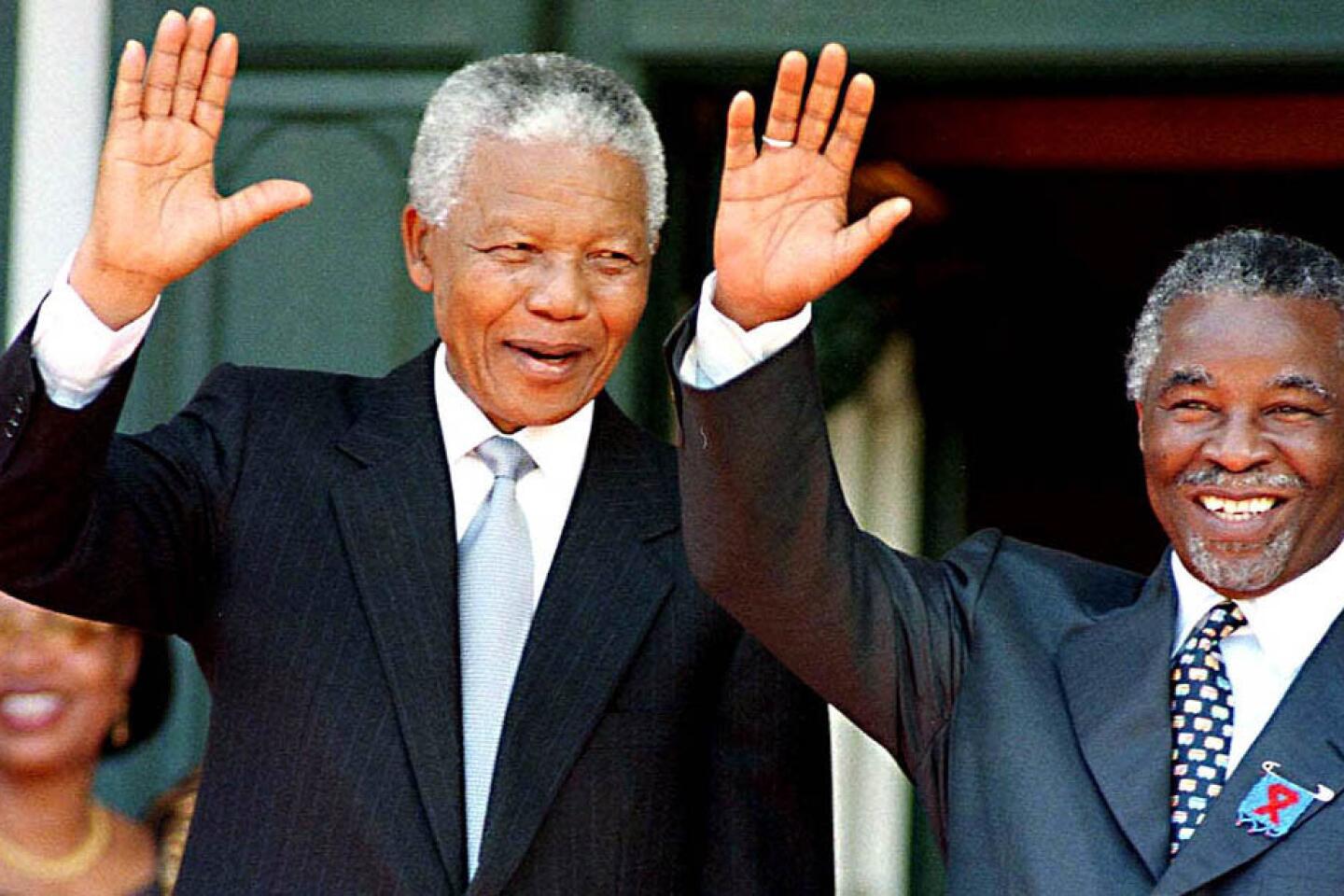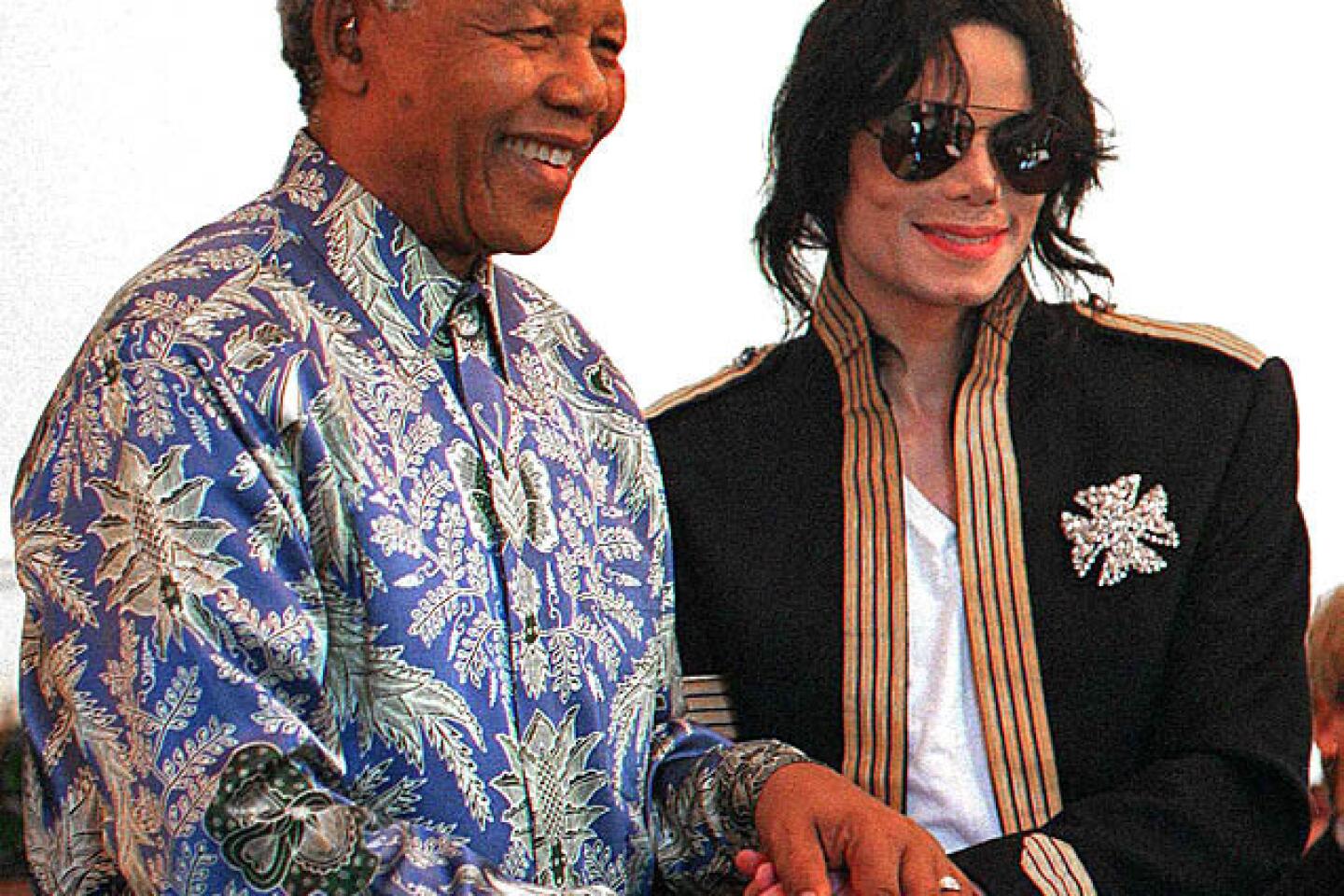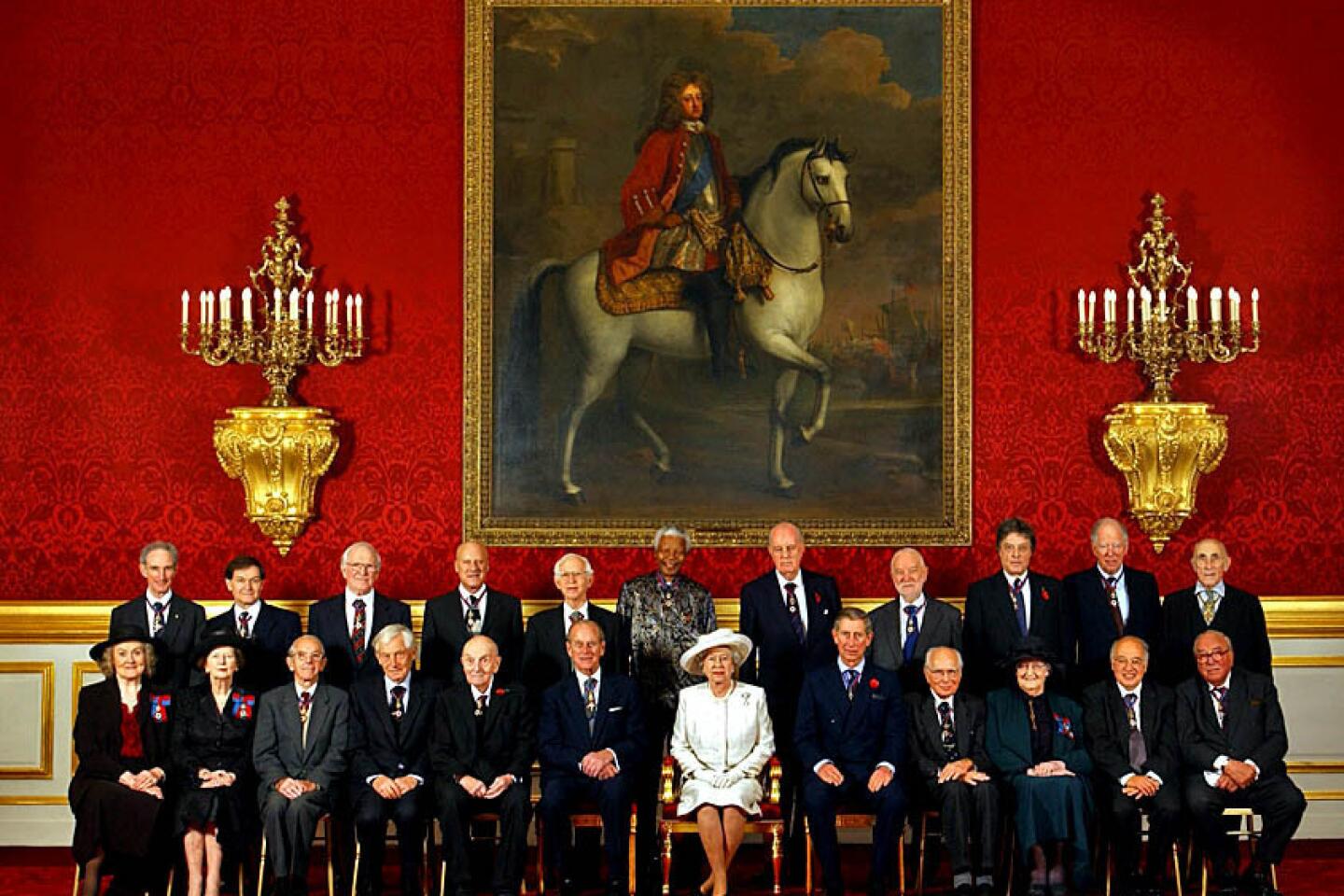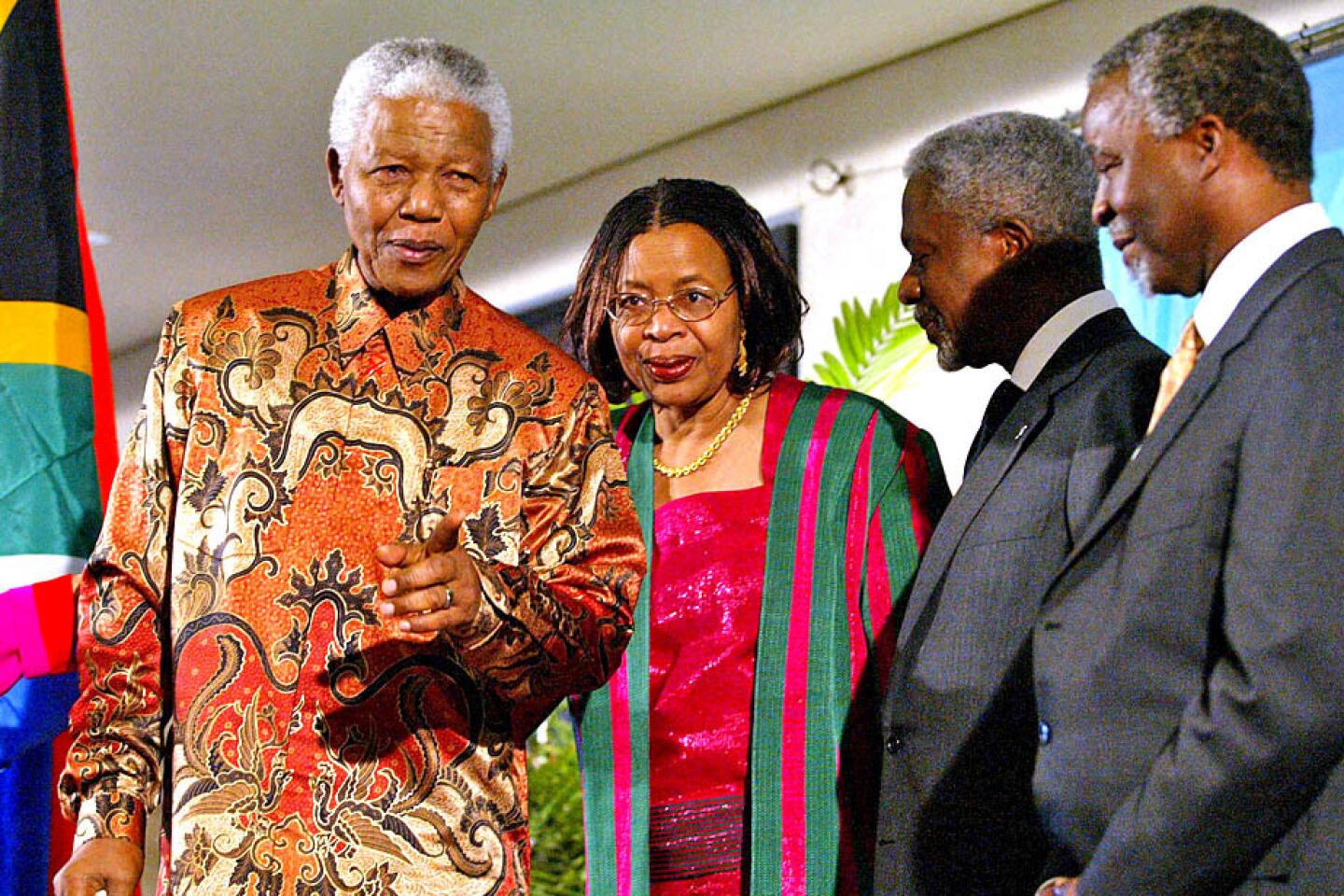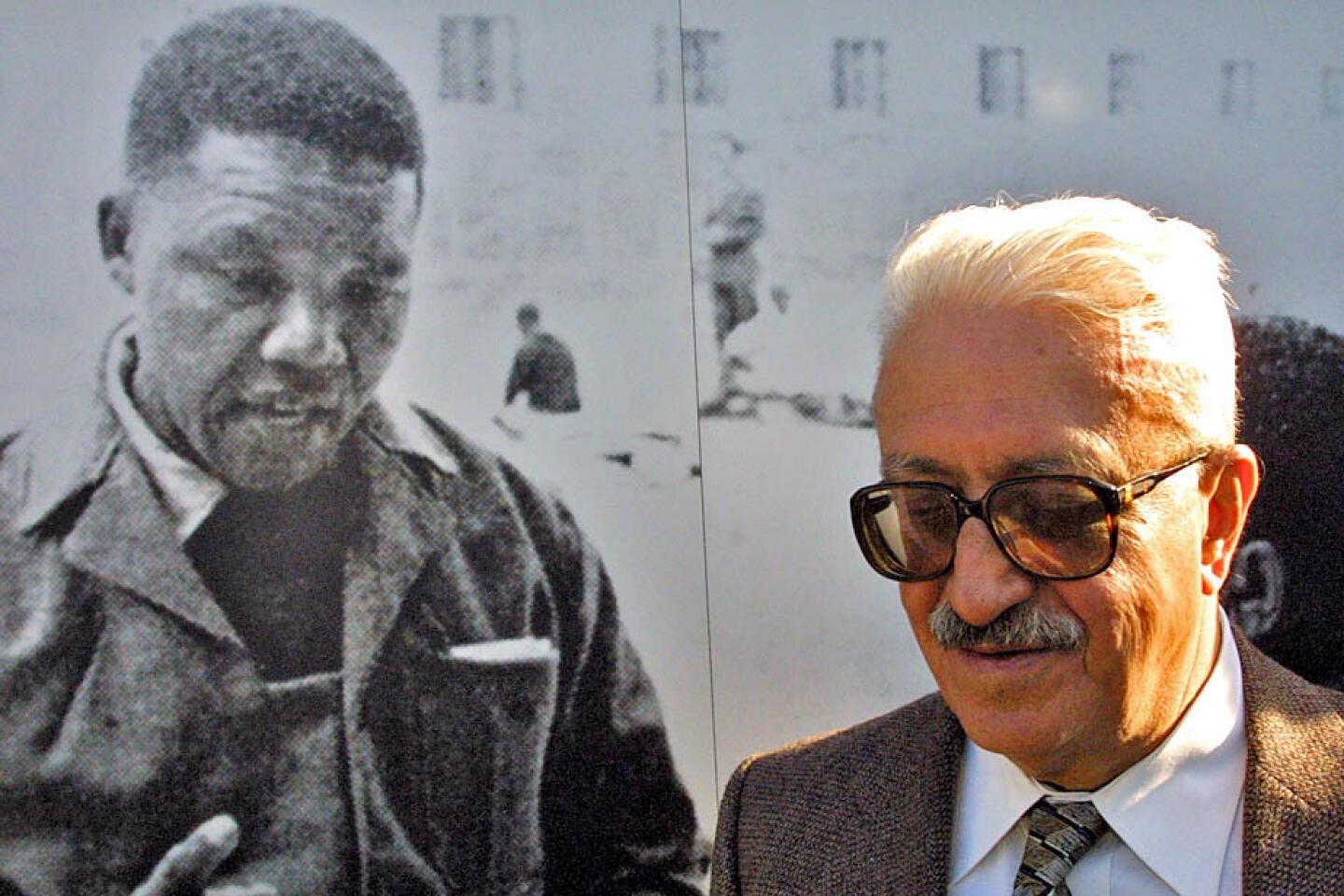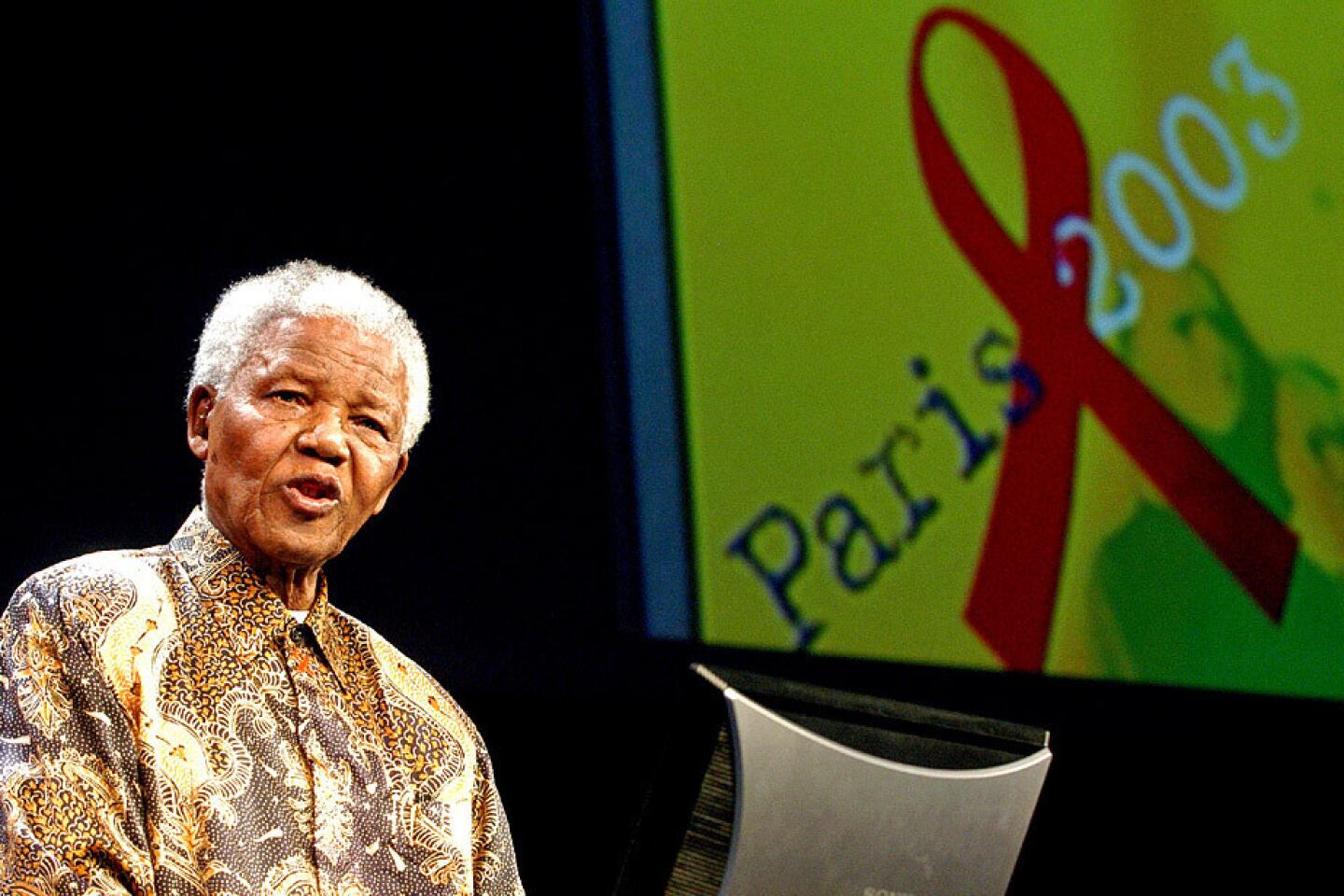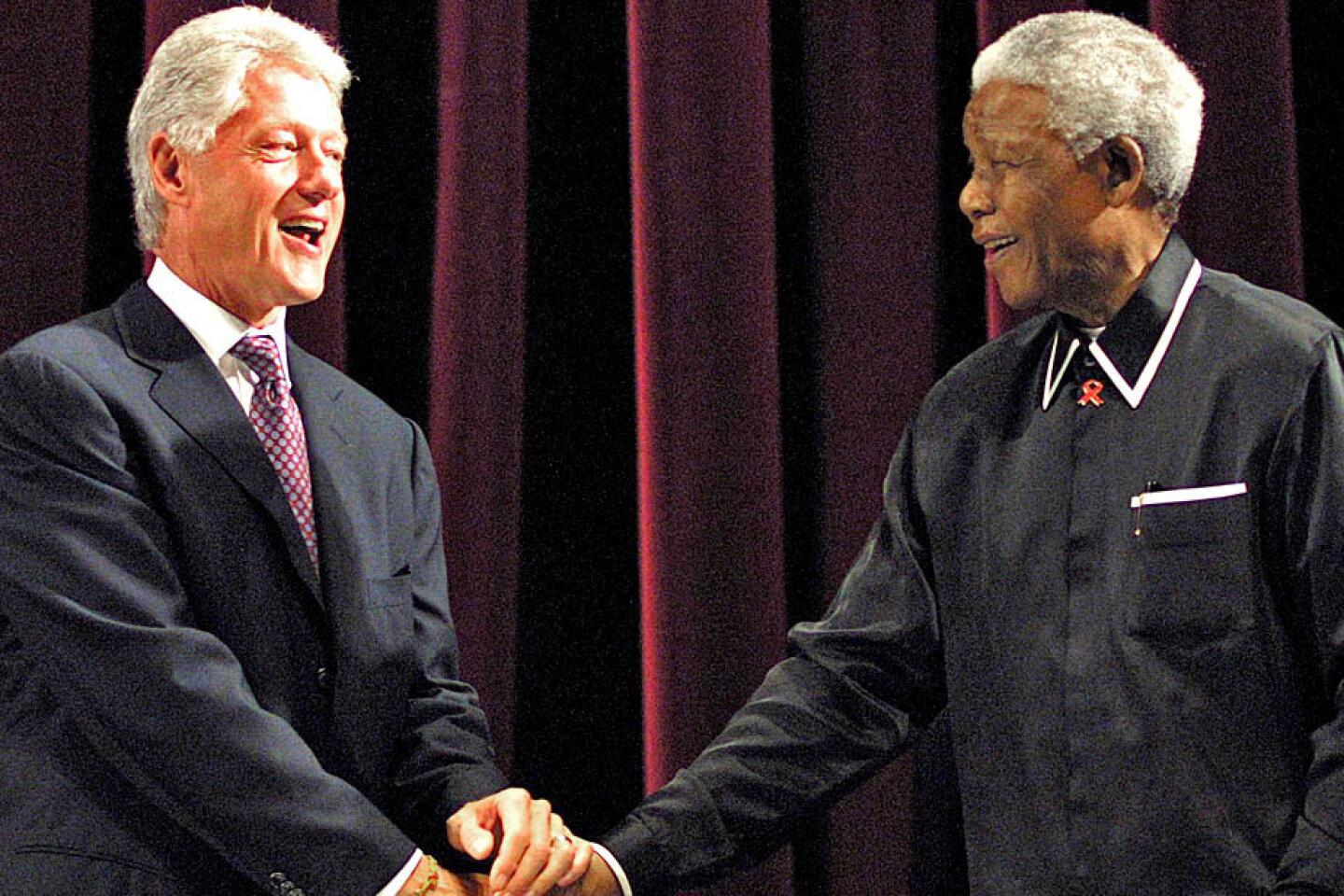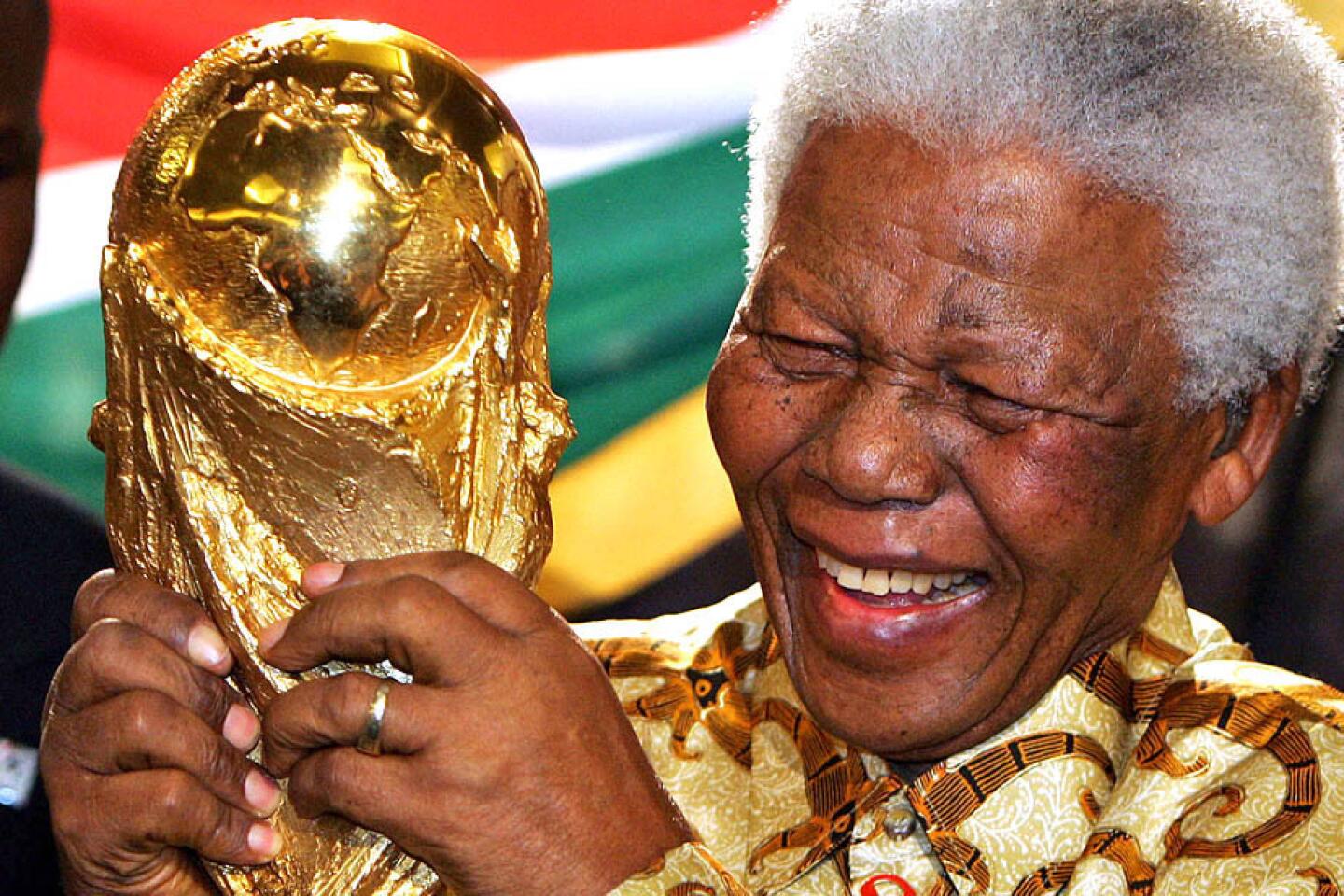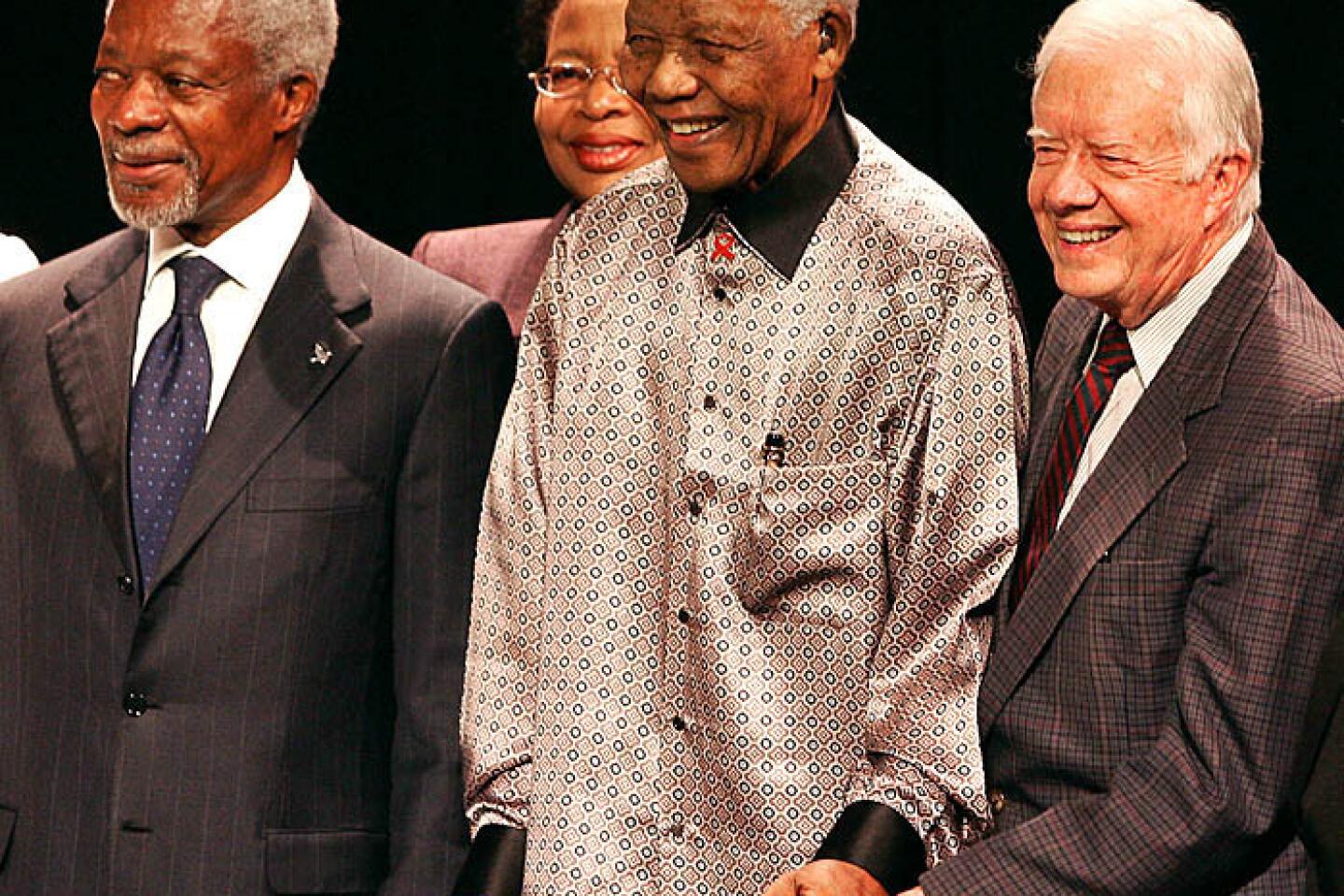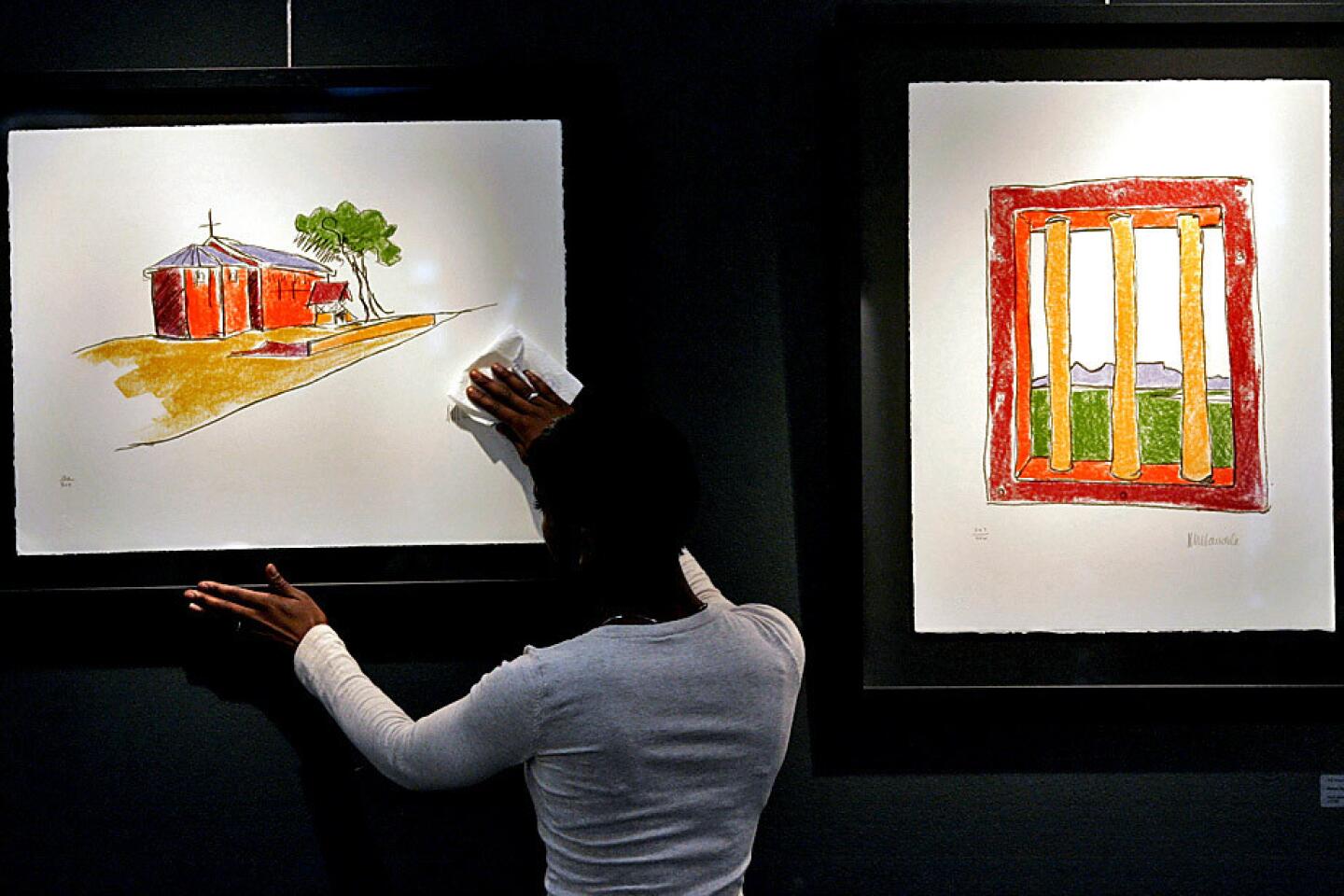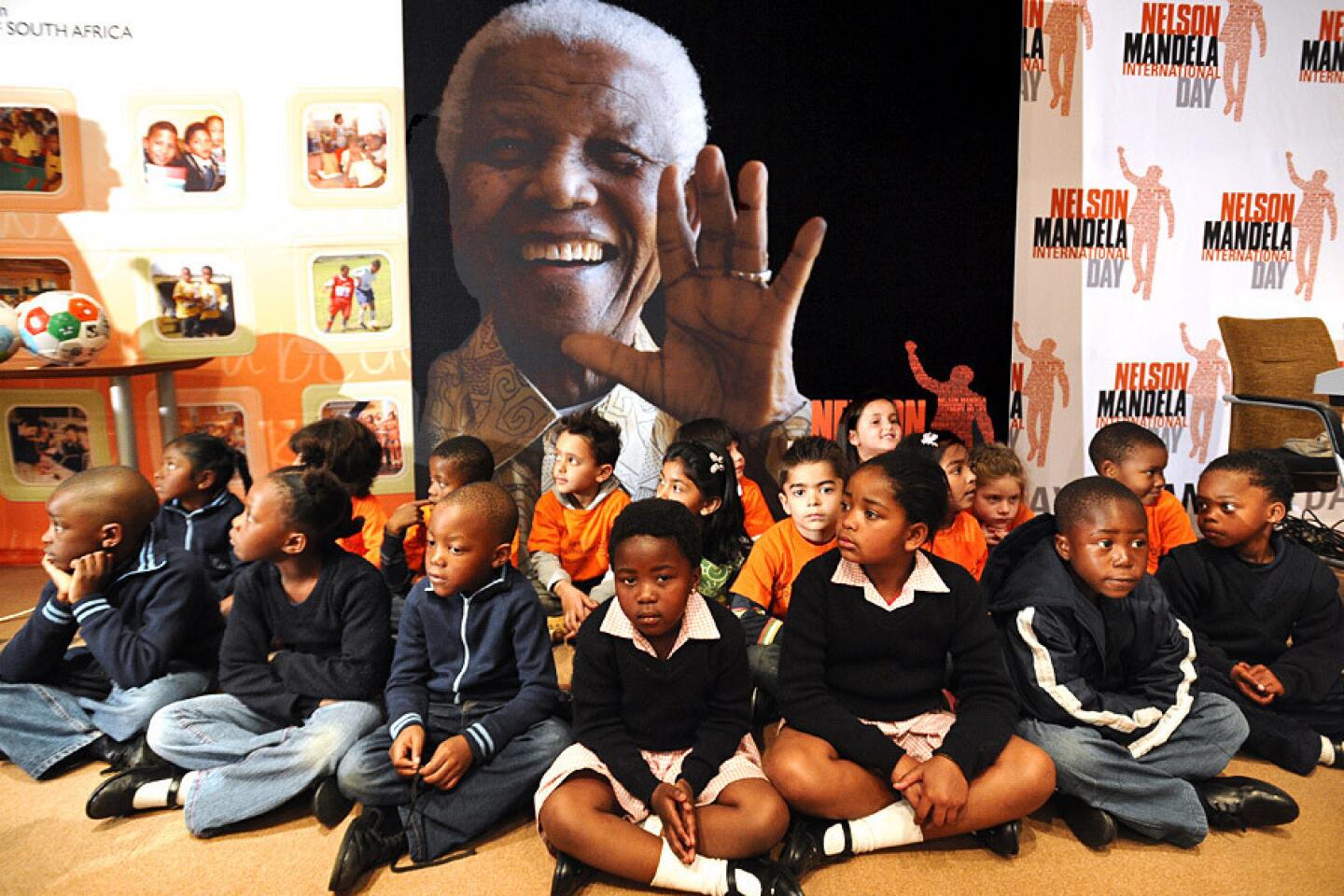Mandela memorial’s interpreter tells of schizophrenic episode onstage
- Share via
JOHANNESBURG, South Africa — He was standing just a few feet from arguably the world’s most powerful leader, President Obama, at the memorial service for arguably the world’s most beloved man, Nelson Mandela.
It was the greatest moment of his career. But at some point during Tuesday’s memorial, Thamsanqa Jantjie says, the angels started to appear.
His concentration drifted. A sense of deep panic gripped the sign language interpreter onstage. There were police and armed men all around who could kill him if he went off the rails. Voices started in his head.
“What happened that day, I see angels come to the stadium,” Jantjie told the Associated Press in one of numerous news interviews that appeared Thursday. “I start realizing that the problem is here. And the problem, I don’t know the attack of this problem, how will it comes. Sometimes I react violent on that place. Sometimes I will see things that chase me.
“I was in a very difficult position,” he said. “And remember those people, the president and everyone, they were armed, there was armed police around me. If I start panicking, I’ll start being a problem. I have to deal with this in a manner so that I mustn’t embarrass my country.”
Fighting his internal crisis, he kept on gesturing numbly. Representatives of organizations for the deaf reacted angrily to his efforts, which were shown on television, saying his signing made no sense and he did not know the gesture for “South Africa” or “thank you.” Instead, they said, he mentioned prawns and rocking horses.
Asked how often he became violent during his episodes of schizophrenia, Jantjie said “a lot,” the AP reported. He told the Daily Sun newspaper that he sometimes ran around in the streets naked and that his community had looked after him.
Jantjie’s presence on stage with world leaders was one of several problems that compromised security at the memorial. Obama’s car was caught in a traffic jam, and members of the public entering the stadium were not scanned or searched.
In Washington, a top Secret Service official said Thursday that “Secret Service special agents are always in close proximity to the president whether he is overseas or in residence at the White House.”
Edwin M. Donovan, deputy assistant director of the Secret Service, said that stage participants were the responsibility of the host organizing committee, as part of security measures agreed upon between the Secret Service and the South African government before the memorial service. But he declined to say anything else about those conversations.
In South Africa, opposition leaders and critics called on the government to explain who hired Jantjie.
Hendrietta Bogopane-Zulu, deputy minister for women, children and people with disabilities, said it had been a mistake to use Jantjie and that the owners of SA Interpreters, the company that provided him, had “vanished into thin air.”
“It’s an interdepartmental responsibility,” she told the AP. “We are trying to establish what happened.”
The 34-year-old interpreter told the Star newspaper that Tuesday’s episode might have been brought on by the momentous occasion or his happiness to be there.
“There was nothing I could do,” he said. “I was alone in a very dangerous situation. I tried to control myself and not show the world what was going on. I am very sorry; it’s the situation I found myself in.”
In interviews with South African journalists Thursday, he expressed deep embarrassment and concern that his children would see his humiliation. “Life is unfair. This illness is unfair. Anyone who doesn’t understand this illness will think that I’m just making this up,” he said.
He said he sometimes reacted violently during episodes and that he once spent a year and seven months in a psychiatric institution, according to the AP.
South African news reports said Jantjie once held a person hostage with a brick at the court where he works as an interpreter. He was also under investigation on suspicion of fraud, according to the reports.
Other reports noted that Jantjie was working onstage for four hours Tuesday without being relieved by another interpreter.
South African news media reported that his family said he had a breakdown two months ago. Eye Witness News reported that police had arrived at his house saying they had orders to commit him to a psychiatric institution but he refused to accompany them.
According to news reports, he said he wanted to stay and look after his family because they needed him.
Times staff writer Kathleen Hennessey in Washington contributed to this report.
More to Read
Sign up for Essential California
The most important California stories and recommendations in your inbox every morning.
You may occasionally receive promotional content from the Los Angeles Times.
